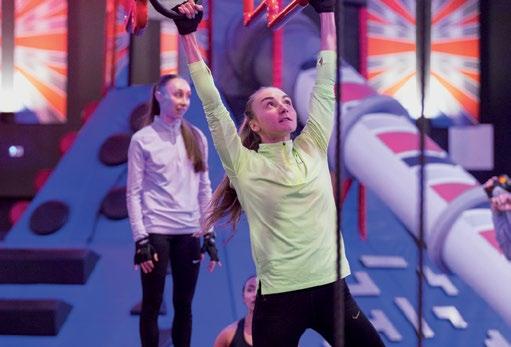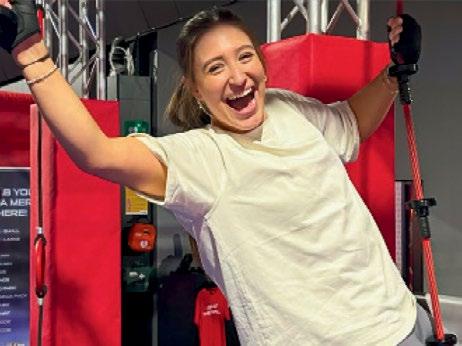




Get the full list of exciting training taking place this year
Recent visits to Bavaria, India and Kenya
Women making history in our organisation
The National Ambassador's next big adventure



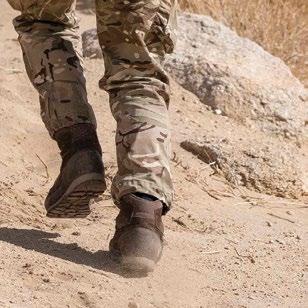

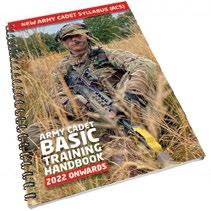

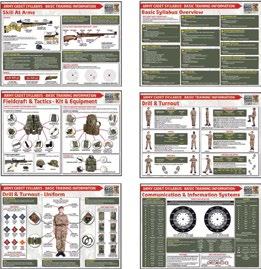
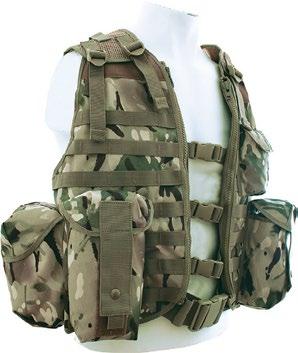

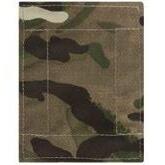

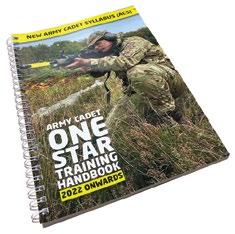
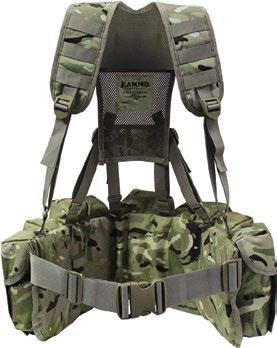
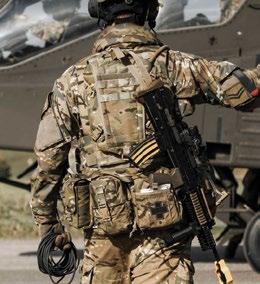
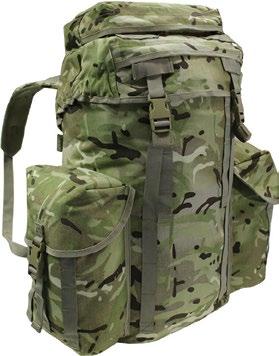
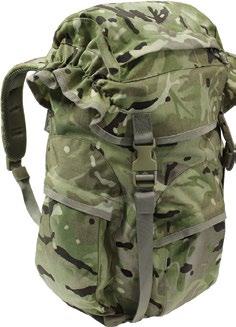


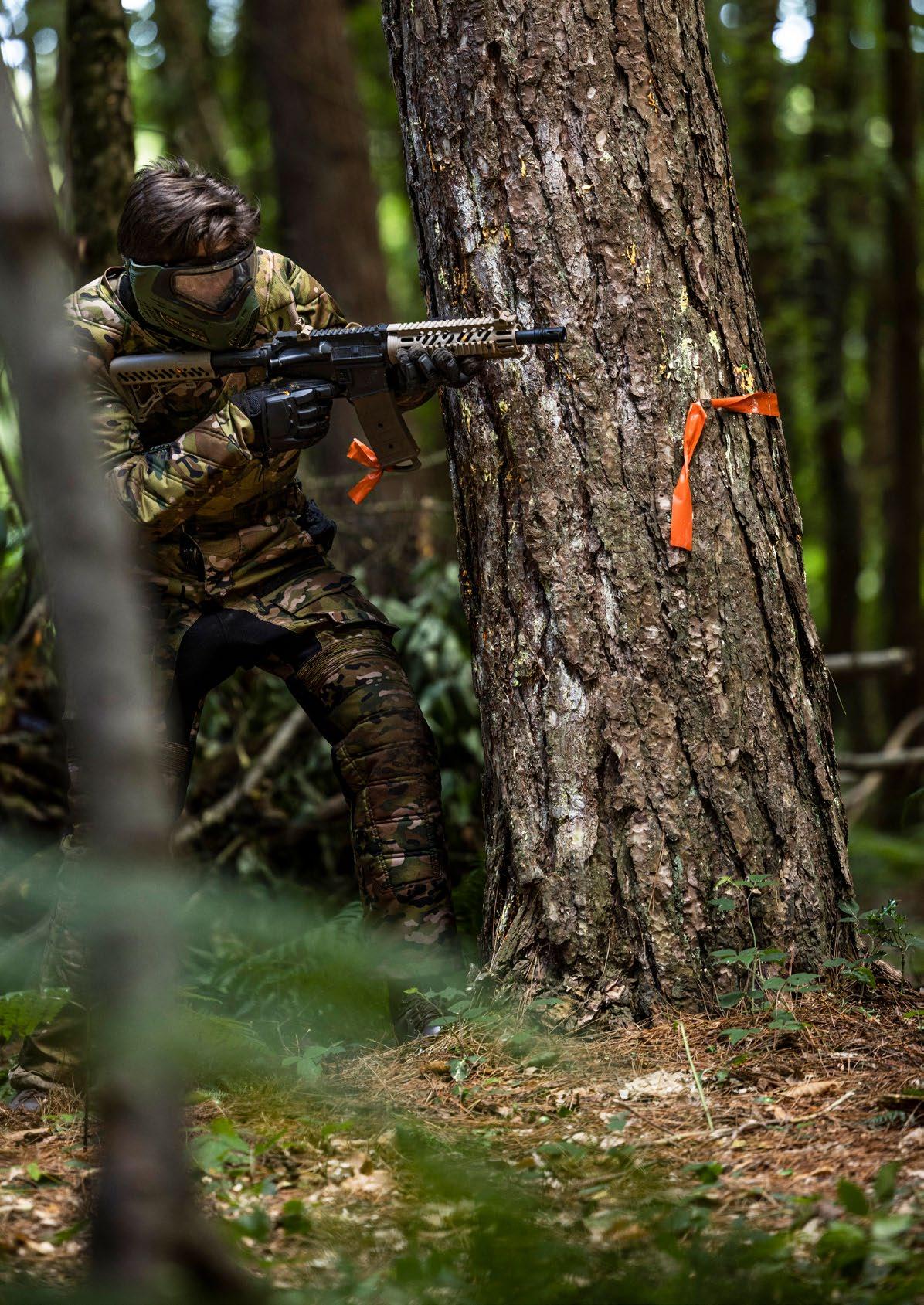
It’s my pleasure to welcome you to the first edition of Army Cadets magazine in 2024. We’ve published it a little later this year and with good reason: the magazine’s strategy has been developed, resulting in a fresh new look and feel. We’ve also changed the frequency of the issues so there will now be four larger magazines each year instead of six smaller ones – and more content driven by you, our readers.
Each issue will be packed with stories sharing what’s going on across the organisation as well as information about opportunities coming up throughout the year. We’ll also be interviewing incredible people outside the Cadets family who connect with the same goals our organisation aims to achieve.
In this spring issue we invite you to meet our new Deputy Commander Cadets, Brigadier Gary McDade, and to find out about the fantastic eco-triathlon that National Ambassador Jordan Wylie will be taking part in to raise money for our charity, ACCT UK.
To celebrate International Women’s Day, which was on 8 March, we’re highlighting the importance and impact our female cadets and CFAVs have within our organisation.
Get the low-down on adventures and expeditions that cadets have been undertaking recently, and take the test on page 48 on the history of the Army Cadets. You could be in with a chance of winning a fantastic prize!
Adam Simmonds SO2 Communications Manager, Media and Communications‘Get the low-down on adventures and expeditions that cadets have been undertaking recently’
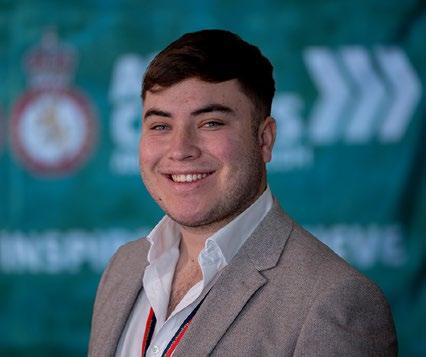

6
Cadets and detachments making awesome things happen, plus fundraising news.
10
The winners of Cadet Challenge 2023 – and how to get involved in 2024.
National Ambassador Jordan Wylie MBE tells us about his next adventure: the ultimate eco-triathlon.
Get the low-down on what happened when a group of cadets visited the Bavarian Alps.
Ten staff cadets experienced a life-changing trip to India to take part in a cultural exchange with cadets from across the globe.
Teaching, football and a wildlife safari were all on the itinerary for Ex KENYAN LION CLUB.
12
Introducing new Deputy Commander Cadets, Brigadier Gary McDade.
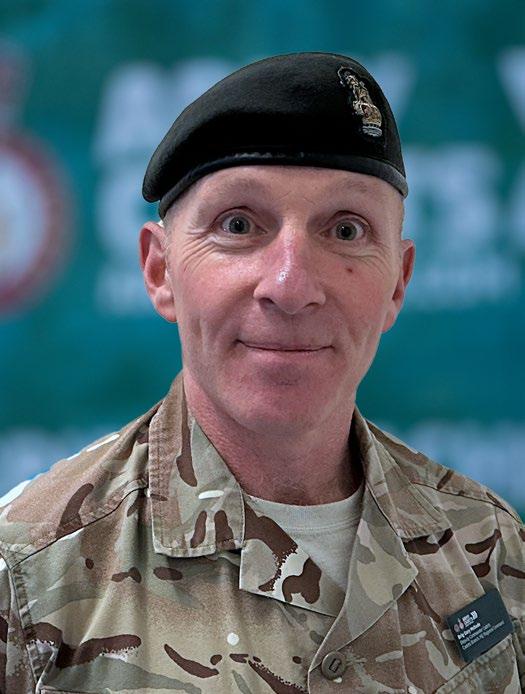
meet your new deputy commander cadets
We take a fascinating look at how the modern metal warriors owe a debt to their clunky forebears.
We catch up with two female CFAVs who made history when they took up senior roles.
How much do you know about the history of our organisation? Take the test and you could be in with a chance of winning a Ninja Warrior UK session.
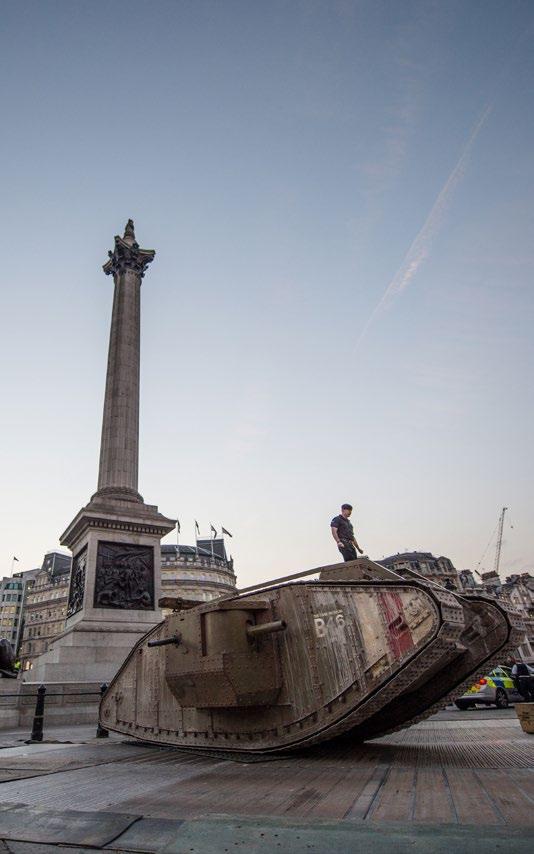

52
Training opportunities in 2024
Roundup of what’s on offer this year – from adventures on the high seas to skiing expeditions.
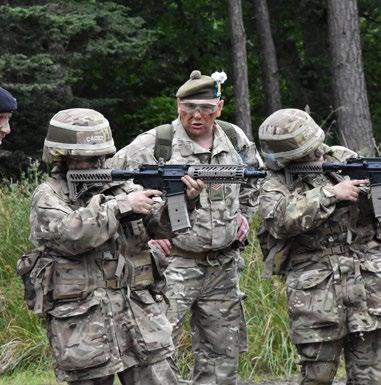
64

66
Top tips
Need-to-knows for cadets and CFAVs attending courses at CTC Frimley Park.
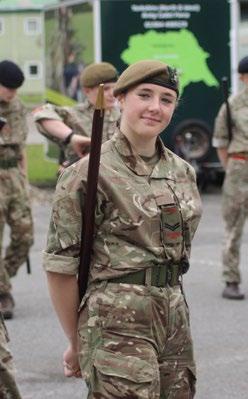
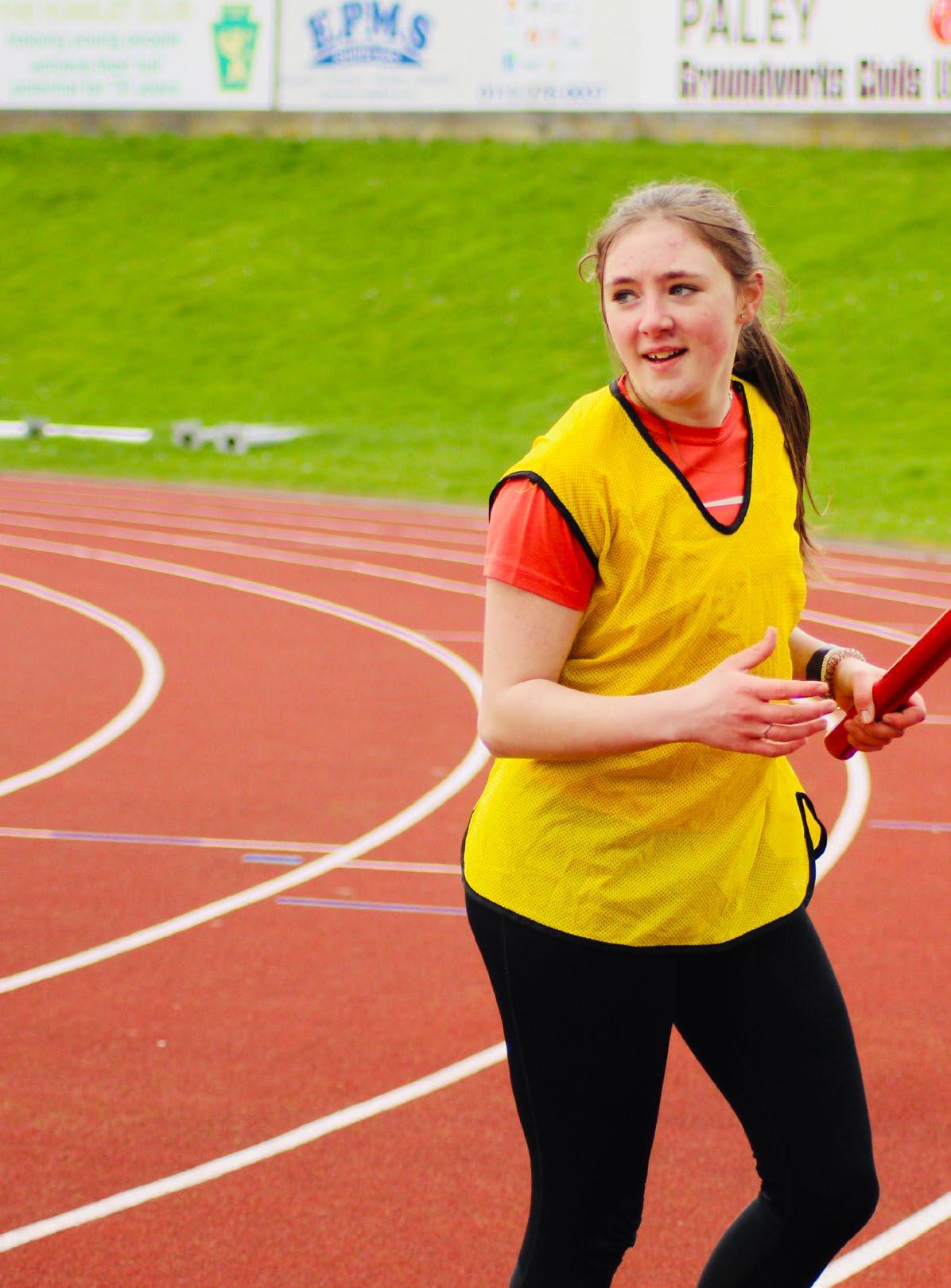
The inaugural ACF National Sportsperson of the Year was revealed in November 2023 as Cdt Sgt Zoe McCosh of Stokesley Detachment, A Company, Yorkshire (North and West) ACF.
Zoe won several ACF Sports national championships during 2022, including individual long jump and 1500m, plus team orienteering. She has also been a national finalist in cross-country and a triple gold medallist at the North East regional swimming competition. As a result, Cdt Sgt McCosh was a clear candidate for the award, which was announced during the Army Sportsperson of the Year awards at the Royal Military Academy Sandhurst in November. Army Sport decided to introduce its new Sportsperson Award of the Year for an Army cadet.
Officer Commanding (OC) A Company, Major Paul Mathers, said: ‘Cdt Sgt McCosh is certainly not a typical cadet. Her achievements are an outstanding example of how sports can change the lives of our cadets. Their health and wellbeing improve, and they become much more confident in their outlook.’
‘Her achievements are an outstanding example of howsports can change the lives of our cadets’
 Left to right: Zoe McCosh in uniform; Zoe on the track
Left to right: Zoe McCosh in uniform; Zoe on the track

There was festive cheer all round when the Royal County of Berkshire ACF Band accompanied Windsor Castle’s 2023 pantomime in November. They attended at the request of the castle community – in particular the Military Knights of Windsor, a group of retired officers who receive a pension and castle accommodation.
The band’s most senior musicians and adult volunteers took part in three sold-out performances and were given permission to stay in the upper ward of the castle. They were also given a behind-the-scenes guided tour.

Bandmaster SMI Angerona Donal visited the castle twice a week from September to November with Cdt CSM Mia Lambert on piano to rehearse with the main performers and chorus line.
‘We were very honoured,’ she said. ‘We had never done anything like this before, but it was a great success. We cannot thank the cast and crew enough for making us feel welcome and giving us the opportunity to perform at this level.’
The band consisted of: Cdt RSM Mia Lambert and SI Katrina Bowker (flute); Cdt Sgt Emily Sutherland and Cdt Cpl Rosie Cowen (clarinet); Lt Adrian Jasper, Cdt Cpl Freddie Shaw and Cdt LCpl Elliott Shaw (cornet); Capt Simon Donal and Cdt Cpl Harry Ryan (euphonium); SSI Robert Young (trombone), Cdt LCpl Edward Lacey (tuba) and Drum Major Charlie Blake (percussion).
Cadets and adult volunteers get a guided tour of Windsor CastleCadets and CFAVs from 13 Company, SW London ACF, supported veterans’ charity Walking with the Wounded by completing the 2023 Walking Home For Christmas challenge.

On a frosty Sunday morning in December, the team walked from the Cenotaph to The Cavalry and Guards Club accompanied by representatives from the Royal Hospital Chelsea and Army Cadets National Ambassador Sally Orange MBE.
As 2023 was the charity’s tenth anniversary, the circuitous route was devised with the number ten in mind. The walk crossed ten bridges – including Chiswick, London and Westminster – before turning up Whitehall (to pass 10 Downing Street) then through Horse Guards Parade. The route finished on the steps of Wellington Barracks – with the support of the Grenadier Guards.
‘This is our fourth year taking part in Walking Home for Christmas,’ said Maj Kaz Lorimer. ‘In that time, we have raised over £15,000 for the charity and are honoured to be able to support this fabulous cause.’
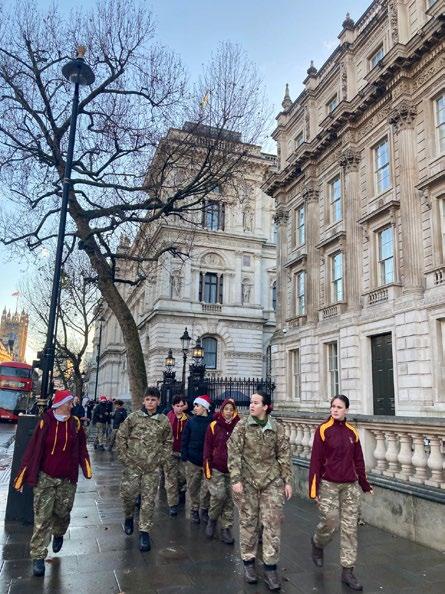
The Combined Cadet Force Association’s Small Grants Programme provides opportunities for individual CCF cadets in schools to achieve the most from their Cadets experience. The programme awards up to £350 per cadet to enable them to take part in CCF-related activities not usually funded by their contingent. This could cover personal kit, expedition or summer camp fees, or the cost of gaining a qualification. Individual applications must be made through the cadet’s contingent commander. Applications are accepted all year round. To find out more and download the application form, click the link or scan the QR code below.
Please help spread the news about the Small Grants Programme to CCF contingents so more cadets can benefit.
Click here or scan the QR code to find out more
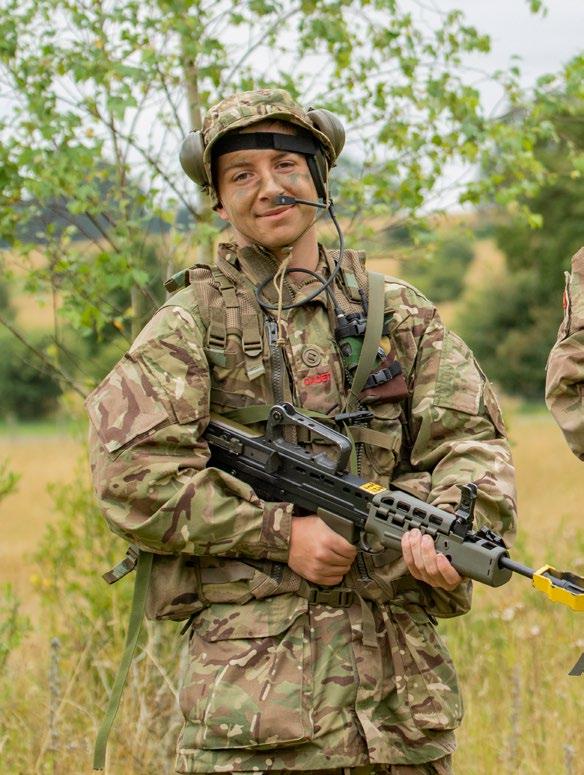

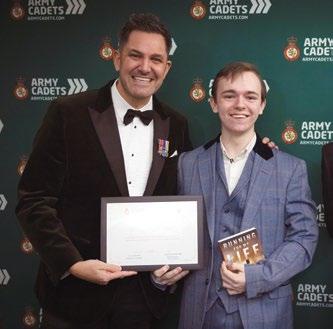
5 Pl (Welsh Guards) Maidenhead, Berkshire ACF, held its annual Christmas awards ceremony at North Maidenhead Sports Club on 13 December, with 110 cadets, CFAVs, parents and guests enjoying an inspirational speech from Army Cadets National Ambassador, bestselling author and extreme adventurer Jordan Wylie MBE.
Jordan then had the honour of presenting 18 awards to cadets, including Cadet of the Year, which was given to L/Sgt Rylee White
‘L/Sgt White is a consistent role model, who continually goes above and beyond to support his detachment, fellow cadets and staff,’ said 2Lt Edward Knott, detachment commander of 5 Pl Maidenhead. ‘He not only demonstrates the values and standards of the ACF, but actively promotes and encourages them. There wasn’t a more deserving winner.’
The less serious but still genuine award for Human Haribo was awarded to the ultimate morale booster. This was presented to Cdt Bentley Hornblow ‘Cdt Hornblow is always smiling, cracking jokes and getting among his peers,’ said 2Lt Edward Knott. ‘He’s known throughout his detachment and company as Smiler.’
News from the Army Cadets and beyond

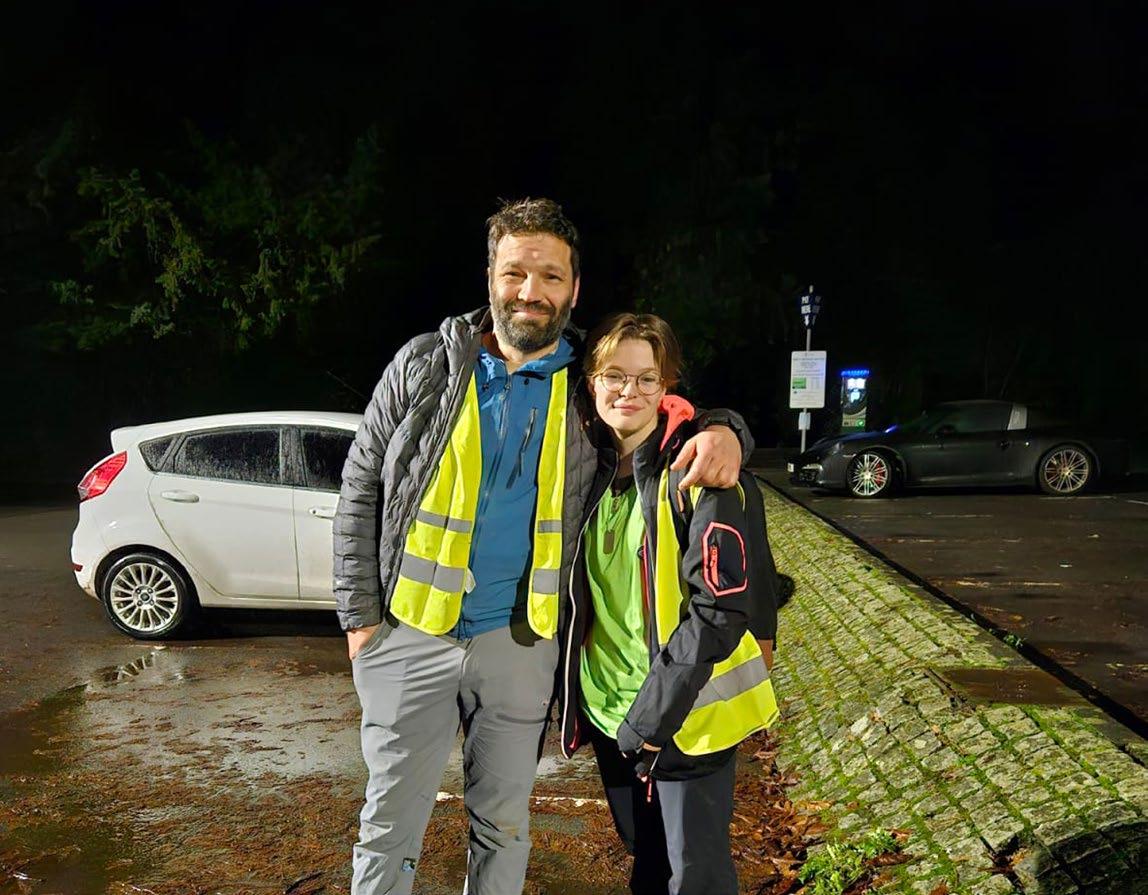
Congratulations to the winners of the Cadet Challenge 2023, which saw cadets and adult volunteers come up with fundraising ideas in aid of ACCT UK. The money raised will enable other cadets to access more opportunities in the Army Cadets UK programme.
A member of Wiltshire ACF showed great initiative and originality in her individual fundraising efforts and was named Cadet Winner for the 2023 Cadet Challenge. Cdt Eden DeBurgh, 15, walked 26 miles overnight. Not only did Eden raise funds for ACCT UK, but she also used the opportunity to raise awareness of the struggle to get to school faced by many young people across the world.
As a county, Wiltshire ACF, Sword Company, raised an amazing £4,476 for ACCT UK. After the charity’s chief executive, Murdo Urquhart, visited to speak about
the 2023 Cadet Challenge, SMI Jo Hearn was inspired to task the county’s 23 detachments with the fundraising effort.
Initiatives included a sponsored Silent Parade Night, a Summer Glow Bright Party, a quiz night and raffle for cadets and their families, and individual fundraising events and activities including bake sales, sponsored walks and bike rides.
Jo had envisaged her challenge would raise £500 in total. ‘Little did I know how much it would grow. Every target that was set has been obliterated,’ she said, paying tribute to ‘awesome adults and outstanding cadets’.

Fundraising continues into 2024, and includes an attempt by Cdt LCpl Sinclair to cycle from Land’s End to London’s Tower Bridge in June.
Cdt Eden DeBurgh with her father Giles who accompanied her on the 26-mile walk SMI Jo Hearn with some of Wiltshire ACF, Sword Company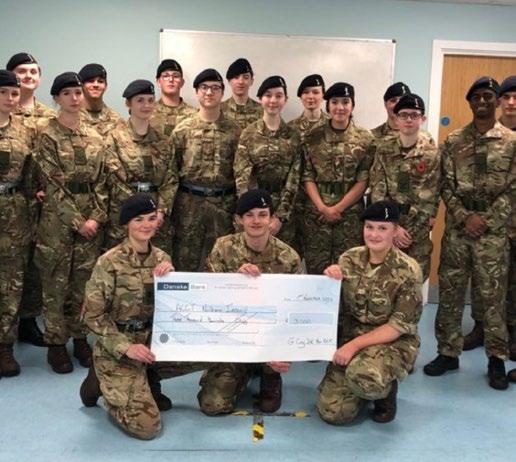
2nd (NI) Bn ACF were named Winning Group for demonstrating outstanding dedication and support by undertaking a wide variety of fundraising challenges. This included bake sales, parachute jumps, football collections and a 7 Peaks Challenge. They also engaged with their local community to promote the ACF and build closer ties. The result was an impressive fundraising total of £4,028, which will make a significant difference to ACCT UK.
The group will receive a £200 voucher to put towards much-needed equipment, and will be the first group to have their name inscribed on the new Cadet Challenge Trophy, which they will hold for a year.
The Adult Volunteer Winner was named as AUO Will East (left) of Argyll & Sutherland ACF, Detachment Commander for Dumbarton and Vale of Leven detachments. He was one of the first CFAVs to fundraise for ACCT UK and, leading by example, helped to develop the Cadet Challenge.


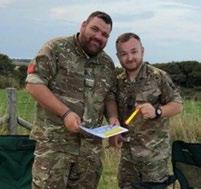
Cadet Challenge 2024 is now live, and cadets and adult volunteers are invited to unleash their imaginative fundraising ideas to raise £10 or more. These funds will support the participation of cadets and adult volunteers in various activities and opportunities within the Army Cadet Force programme, including adventurous training, battlefield tours, sports, music, first aid training, Duke of Edinburgh’s Award and more.

Whether you choose to conquer challenges individually or unite as a detachment group, your endeavours hold the power to make a substantial impact. Click the link or scan the QR code below to set up your fundraising page.
 2nd (NI) Bn ACF
2nd (NI) Bn ACF
News from the Army Cadets and beyond

‘It was quite something, aged 14, to go behind the Iron Curtain’
Brigadier McDade has recently stepped into the role of Deputy Commander Cadets. He’s planning to meet as many cadets as he can and is excited to help improve the prospects and opportunities for everyone in the organisation. Here’s the need-to-know.

I was born in Oxford in 1973 and my father was a US serviceman in the United States Air Force – he was a Vietnam veteran. During my early childhood I lived with my mother in England while my father was in the States, and we’d travel there to see him. My father being a US serviceman may have sowed a seed in terms of my future career in the military.
It was at senior school that I joined the CCF. In 1987, on my first summer camp, I got to go through East Germany to Berlin (it was two years before the Berlin Wall came down) where we were hosted by 1st Battalion, Gloucestershire Regiment. It was quite something, aged 14, to go behind the Iron Curtain.
I returned to Berlin on another summer camp when I was 17, after the wall had come down. This second visit coincided with Germany beating Argentina in the World Cup final – and I was out on the streets of Berlin during the celebrations.
By this time it was very clear to me that life in the Services was something I wanted to pursue. I left school – I didn’t go to university – and travelled before going to do my officer training at Sandhurst in 1993.
When I reflect on my time in school I think perhaps I should have worked a little harder! I did work hard on the sports pitch though and was successful in various sports.
One teacher made a real difference to me: Wes Thomas who was in charge of the CCF contingent. He gave me the confidence to go for it in the services and was instrumental in getting me to where I am now. I don’t think I said thank you to him at the time and I should have. It’s one of the reasons I believe we should always take pains to say thank you to our volunteers. They are absolutely amazing and make a huge difference to cadets’ lives. It’s a privilege to now come full circle and be Deputy Commander Cadets, after starting out as a cadet.
As well as several operational deployments to hot and dusty places all around the world, there has been a training ‘Golden Thread’ running throughout my career.
Many years ago I trained recruits and I’ve been an instructor at Sandhurst. I was the Army Exchange Officer at Britannia Royal Naval College in Dartmouth and have also been an instructor in the Defence Academy.
One of the highlights of my career was my role as Commandant of the Military Corrective Training Centre in Colchester where, during the two and a half years I was in post, we oversaw the rehabilitation of 960 detainees – people who had lost their way a little bit. They needed an arm wrapped round them and to be helped back on the rails and sent back to service life or a life outside the military.
Every day we were improving people’s prospects and opportunities and I’d like to do the same in the Army Cadets and help shape the next generation.
I was asked by a general about ten years ago to describe myself in three words, and they were ‘enthusiastic’, ‘straightforward’ and ‘reliable’. It still applies. I have always been a glass half full sort of person – what you see is what you get, and if I say I’m going to do something I’ll give it my best shot.
I’d like to try and pass on some of the values we live by [in the Army]. We’re all different and my three words will be different to someone else’s, but when you look at the core values we have in the Army (courage, discipline, respect for others, integrity, loyalty and selfless commitment) they are good values to impart to our cadets and volunteers. Regardless of whether you choose to serve in the military or not, those will stand you in good stead in life.
A few things you may not know about your Deputy Commander Cadets
• He was an extra in Indiana Jones and the Last Crusade
• He likes to make chutney and marmalade
• He’s a rugby referee and vice chair of the Army Rugby Union
• He’s the father of two teenage daughters, aged 17 and 19
Army Cadets National Ambassador Jordan Wylie MBE takes on the ultimate eco-triathlon which will see him paddle in a kayak made from recycled bottles, cycle on a wooden bike and run a route spanning three iconic towers.

‘I’m not trying to portray myself as super green. It’s more of an experiment to see how sustainably I can do it’
Jordan Wylie has set himself some extraordinary challenges over the years but his latest fundraising adventure has to be his most eco-friendly – and quirky – to date.
At the beginning of April the Army Cadets National Ambassador takes on an eco-triathlon which will see him cycling on a bicycle made from coppiced wood, sailing in a kayak made out of plastic bottles and using his own leg power on a journey that passes three iconic towers. The idea is to complete the triathlon with the smallest carbon footprint possible.
The route for this 3,000km challenge will take him past the Leaning Tower of Pisa in Italy, the Eiffel Tower in France and Blackpool Tower in the UK.
In 2020, Jordan set out on a challenge called Running Dangerously Polar Edition with the aim of running marathons in ten of the coldest places on the planet. It was a resounding success and he completed runs in some of the most foreboding and freezing conditions imaginable, including in Outer Mongolia and Alaska. However, when it came to his final marathon at the North Pole, his plans kept being thwarted – first due to Covid and then the Russia-Ukraine war.
On his fifth attempt, the obstacle that prevented him running across Earth’s most northern point was linked to climate change. Authorities were stopping unnecessary aircraft moving through the skies in the region due to their high emissions of carbon dioxide and other greenhouse gases. Rather than waiting to try again, Jordan decided to heed the message and pay attention to his own carbon footprint.
‘As an explorer, adventurer and a National Ambassador for the Army Cadets I felt I had a responsibility; I realised I didn’t know enough about climate-change challenges.’
Jordan then decided to set himself a challenge focused on sustainable and eco-friendly modes of travel.
‘I was terrible at school so the way I have always learned about things has been by going out there: exploring and learning about the world through action. I decided the best way for me to find out about climate challenges was to carry out an expedition that would be as sustainable as possible.
‘I’m all too aware I have been a serial offender when it comes to travelling around the world by plane when carrying out my challenges and adventures. By setting out on this eco-triathlon, I’m not trying to portray myself as super green. It’s more of an experiment to see how sustainably I can do it.’
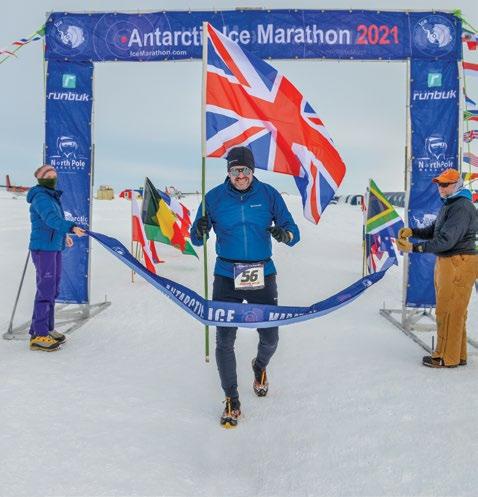
Jordan wanted to include his childhood hometown of Blackpool in the eco-triathlon and to challenge himself by expanding his adventure into Europe. This is when he got the idea for three towers: to link the famous Blackpool tower to two other iconic towers.
Jordan will cycle the first leg of the journey on a bike built from coppiced wood collected from the Sholing Valley and Daisy Dip in Southampton. His route will take him from Pisa to Paris and then on to the French side of the English Channel.
His bike is being built by Nick Coates and the team at BEAMZ, a company that creates beautiful highperformance bespoke bicycles from wood in the most environmentally friendly way possible. It’s crafted from natural hardwood poles made from the stems of small trees – particularly goat willow.
‘For Jordan’s bike we opted for designs and processes that have demonstrated their reliability in the past, opting for a robust structure, rather than aiming for the lightest weight,’ says Nick.
Nick designed Jordan’s bike for adventure, taking pains to ensure it can carry a substantial amount of survival equipment (around 30kg). He is excited to see how the bike will fare in the eco-triathlon.
‘The schedule is a challenge – ideally a longer break-in period between the initial delivery of the bike and the expedition would give more time for bottoming out any issues. However, the challenge of the current schedule means we have tried to anticipate everything that could go wrong.’
Jordan’s
1
Start at Pisa
2
Cycle to Paris
‘Jordan’s bike has been crafted from natural hardwood poles made from the stems of small trees’
Cycle to the French side of the Channel 3
Paddle across the Channel 4
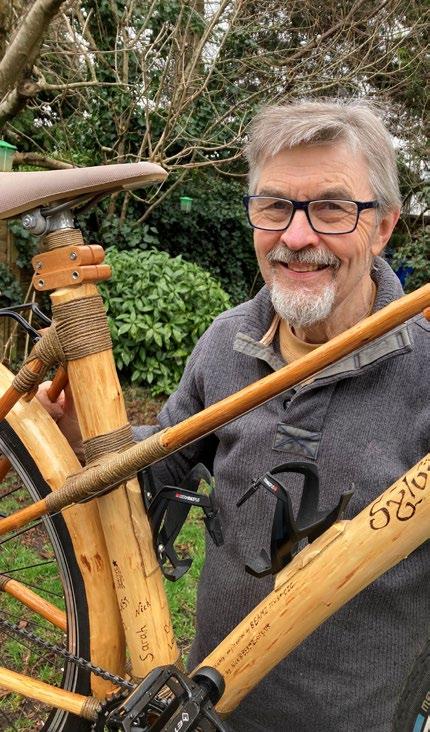
‘To create the bike frame BEAMZ collected coppiced poles by joining local projects where vegetation on public land was being cut by volunteers’, says Nick Coates of BEAMZ, pictured above with one of his wooden bikes.
(with cadets joining him on the way)
‘I’m optimistic this unconventional kayak will cross the channel’
‘The surfaces of these poles feature attractive textures characteristic of the tree species which have been used to form a unique robust surface for Jordan’s bike frame.
‘The bike’s joints have been strengthened by binding them with braided fibre from the stem of the hemp plant, vacuum impregnated with a resin which sets hard. The drop-outs (where the wheels fit into the frames) and disk brake callipers have been mounted and cast from recycled alloy car wheels, melted using sustainably grown charcoal. Reusing metal in this way has a small fraction of the carbon footprint compared to using new metal.
‘The frame and forks are being finished with varnish made from natural plant oils before the conventional wheels, gears and set are fitted.’

‘Cadets and adult volunteers do lots of amazing things for charity, yet I often find there is not so much awareness about our own charity ACCT UK’
The second part of the eco-triathlon sees Jordan paddling across the Channel in a kayak made out of recycled bottles. The vessel is being built by maritime engineering students at City College (part of the South Hampshire College Group) in Southampton. Naval architect and sailor Conrad Manning, who is overseeing the build of the kayak, says: ‘I am optimistic that this unconventional kayak will cross the Channel. It’s actually the weather, shipping and Jordan’s battle with the elements that could turn out to be the biggest challenges.’
This isn’t the first crazy seafaring challenge Conrad has been involved in: he previously created a paddleboard made out of trash, which was subsequently paddled around Hayling Island and the Isle of Wight.
‘I was keen to get involved in Jordan’s project because it’s about inspiring future engineers with interesting and engaging projects, highlighting the environmental challenges we face, making an impact through charity, supporting teachers and education with resources and stories – and because it is fun!’ he confesses.
Once Jordan has crossed the Channel he will be running to Blackpool – although he does reserve the right to hop back on the bike if his legs require a different activity from time to time! He hopes that, with the permission of their detachment commanders and parents, some cadets may be able to come and walk with him when he reaches English shores. Jordan will be posting regular updates on social media so cadets will be able to track his progress.
An important aim of Jordan’s eco-triathlon is to raise money for the Army Cadets’ own charity ACCT UK.
‘Cadets and adult volunteers across the nation do lots of amazing things for charity, yet I often find there is not as much awareness about our own charity. I am hoping there will be cadets keen to fundraise for this project and to help spread awareness of our charity.’
Chief Executive of ACCT UK Murdo Urquhart is grateful to Jordan for his fundraising efforts.
‘ACCT UK helps young people access the life-changing training and development opportunities provided by the ACF,’ says Murdo. ‘The motto of Army Cadets is ‘To Inspire To Achieve’ and Jordan’s wonderfully imaginative idea does that in spades. His vision and commitment is exceptional.
‘The money he raises through this triathlon will enable ACCT UK to increase the support we give to the ACF by funding additional overseas adventures, first aid and music training, and other cadet development programmes.’
‘Jordan’s kayak looks a little like a Canadian canoe made out of around 2,000 recycled bottles of various sizes,’ says naval architect and sailor Conrad Manning.
‘The primary structure that will take the hydro-loads is made from box-jointed plywood and the buoyancy comes from the bottles. It’s covered in an old sail to reduce the amount of water flowing through it and to give it a more hydrodynamic shape – hopefully leading to a quicker and therefore safer crossing.
‘It’s buoyant enough to float Jordan, his kit and the weight of the boat, which is a simple weight, volume and density equation. There are a few more bottles added on top for the freeboard, which stops water coming in over
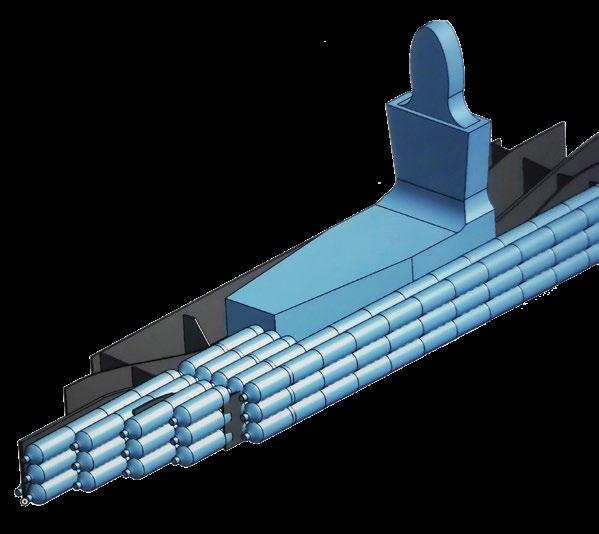
Headline sponsors David Mellor Family Jewellers have financed the practicalities of the eco-triathlon so Jordan is able to concentrate on the challenge itself and fundraising for ACCT UK.
‘Without them I wouldn’t have been able to commission the building of the kayak and the bike so their support has been crucial,’ says Jordan.

Pupils across the country have been getting involved with the eco-triathlon by collecting bottles for the kayak and engaging with educational resources created by the Centre for Climate Change Action and Education at Winchester University.
Jordan is expecting the Tower Power adventure to take a few twists and turns en route.
‘Nobody has ever done this before so it’s a genuine experiment and I don’t know how successful it’s going to be,’ he says. ‘Nobody has tried to travel this far on a bicycle made from wood which needs to be strong enough to also carry my tent, sleeping bag and kit. Crossing the English Channel in a normal kayak or a boat is hard enough, let alone in one made from recycled bottles, so there are a lot of unknowns to encounter.’

These Key Stage 2 and 3 materials have enabled pupils to design flags and kit for Jordan, discuss his bike and kayak blueprints, work out the best route for him to take and come up with an optimum diet to sustain him on his journey – all with the aim of turning his eco-triathlon into a low-carbon, low-impact adventure.
‘I see these pupils as a big part of my expedition team – but working remotely,’ says Jordan. ‘We’ve been in and spoken to many schools and the feedback from the teachers about these resources has been really good.’
Dr Simon Boxley, Senior Lecturer in Education Studies and Liberal Arts Centre at Winchester University says: ‘We have a passion for sustainability and saw a great opportunity to engage our academy schools trust community with real-world, real-time sustainability problem-solving.’
Dr Michael Hall, Programme Leader for Education at the university, added: ‘We very much hope that it will inspire children, supporting their learning across the curriculum and engaging them with important issues around sustainability and the environment.’
Jordan aims to keep his carbon footprint to a minimum by finding somewhere low-key to sleep and wash each night.
‘If I were running a marathon there would be a light at the end of the tunnel because I’d know I was going to have a bath and a nice meal at the end of the day. However, I am not going to be staying in luxury hotels with comfy beds. I am likely to be sleeping in fields and staying at campsites.
‘The Tower Power challenge, like the Great British Paddle I did before, is going to be more of a psychological battle than a physical one. The end won’t be near for around a month so it will be all about keeping myself going.’
Jordan’s strategy for completing the eco-triathlon involves maintaining a positive and flexible attitude.
‘It’s about embracing the adventure and immersing myself in it,’ he says. ‘I have a plan but I’ve tried not to plan everything in minute detail because a lot of things will change: things will go wrong, equipment might fail and there will be variables like the weather.
‘I think the key is to take one day at a time and, at the end of each day, I will take what I’ve learned and apply it to the next day.
‘As long as the wheels are moving forward and your feet are moving in the right direction then you get there in the end – and that applies to anything you want to do in life.’
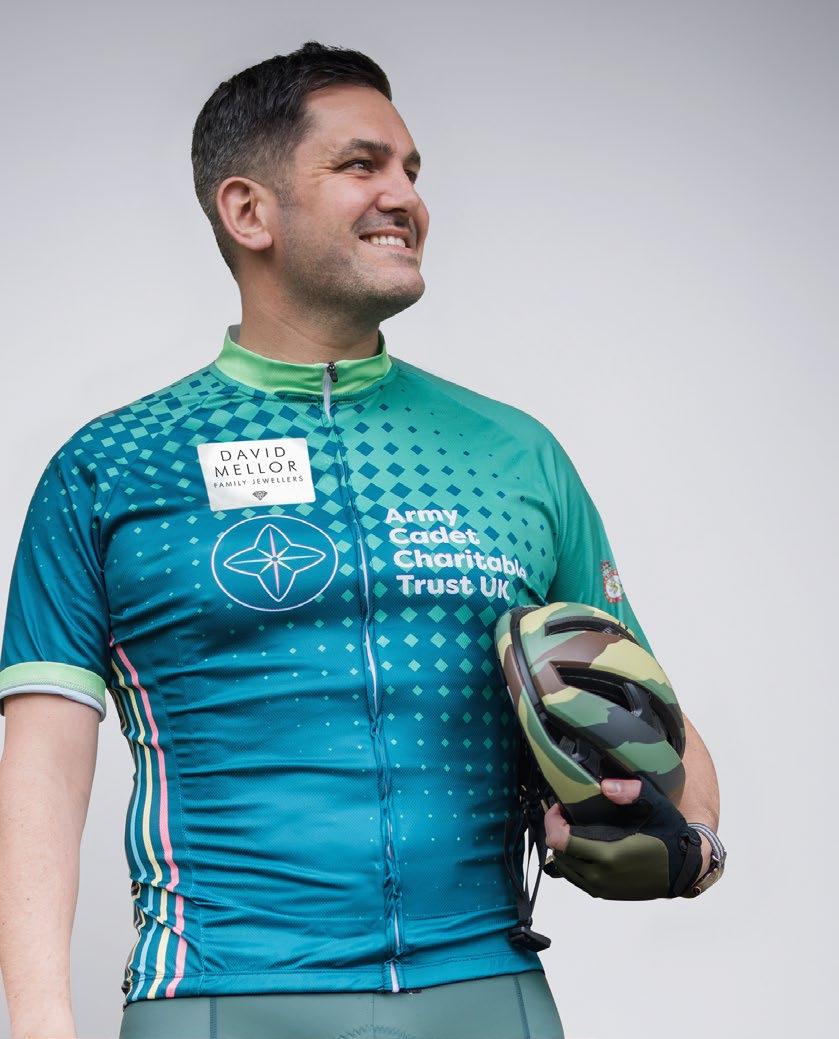

ACCT UK wants to ensure every young person has the opportunity to learn new skills, build confidence and be inspired through their Army Cadets experience. It provides financial and other help to cadets, especially where cost is a barrier to participation or achievement.
Each year, ACCT UK empowers over 38,000 young people and supports over 5,000 adult volunteers. In the last ten years, it has made grants of £4.5m to help cadets or adult volunteers acquire accredited qualifications, take part in educational activities abroad, acquire first aid skills, participate in the Duke of Edinburgh’s Award and outward bound activities, learn a musical instrument and sponsor sporting competitions. The charity has also supported Cadet Counties in purchasing equipment for a wide range of developmental activities.
Are you or your detachment able to fundraise for Jordan’s Tower Power challenge?
Click here or scan the QR code to make a donation.
To access free educational resources throughout Jordan’s Tower Power adventure, click here or scan the QR code.
To find out more about Jordan’s Tower Power eco-triathlon, click here or scan the QR code.
This unique eco-triathlon is also raising funds for a memorial wall for Jordan Banks, a nine-year-old boy from Blackpool who Jordan Wylie had the pleasure and privilege of meeting several times.
‘Jordan was a happy, adventurous and beautiful soul who touched the lives of so many people with his infectious charm, warm heart and cheeky smile,’ says Jordan (Wylie). ‘On 11 May 2021, Jordan (Banks) was attending his football training session when he was tragically struck by lightning, which resulted in his young life being cut short.’
A quarter of funds raised from Tower Power 2024 will go towards a memorial wall created by MurWalls in Blackpool, which will be revealed when the challenge reaches Blackpool Football Club.
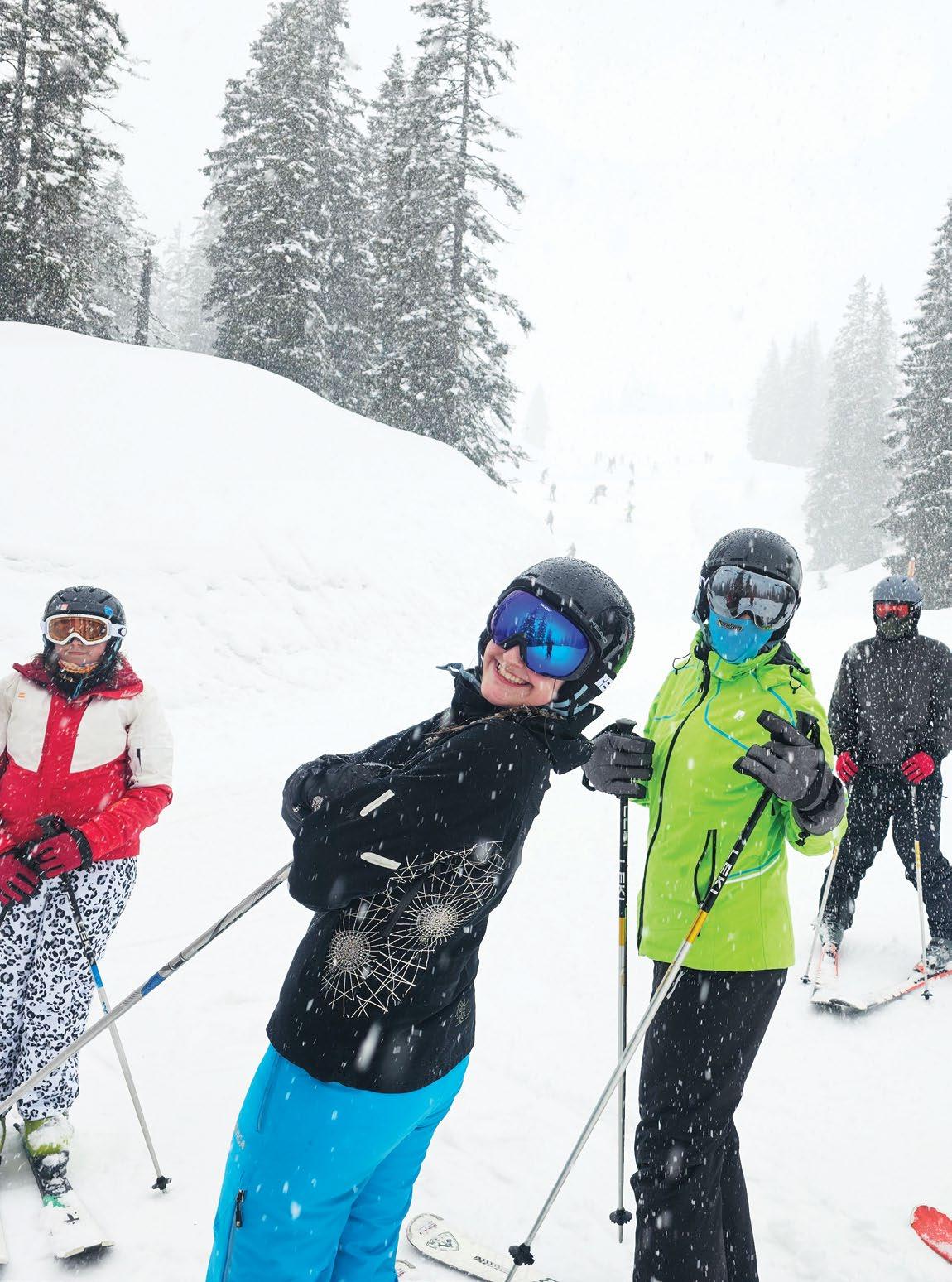
Cadets and CFAVs recently visited the Bavarian Alps for a spine-tingling ski adventure. As well as learning to master the slopes they grew in confidence and self-reliance.
‘Cadets have the opportunity to see that adults also feel exposed when trying something new’

Carving through fresh snow at high speed while breathing in fresh alpine air is an exhilarating thrill which 58 cadets had the great fortune of experiencing during a recent trip to Sonthofen in Bavaria, Germany.
From 10-24 February, two groups of cadets were deployed to the Alps for five full days of ski training. They were able to glean tips from experts and push themselves physically and mentally to master the fundamentals of the sport. Their reward? An adrenaline-packed adventure as well as an opportunity for personal development and a chance to learn to ski. Cadets finished the ski course with a qualification in addition to a certificate from Army Cadets. They also received a Snowsport England Snowlife award with the level they’d reached printed on it, so they could proudly display their achievement at home.
Following the success of last year’s skiing adventure in Bavaria, the Cadet Centre for Adventurous Training (CCAT) was keen to recreate the same inspiring and beneficial experience for more cadets.
CCAT Manager Chris Heslop organised and took part in the trip (as part of his role looking after the admin and planning CCAT courses and overseas expeditions). Preparations included him learning the basics of skiing before flying out to Bavaria with the cadets.
‘Like the cadets, I’m also at the start of my skiing journey,’ he said. ‘I went skiing in January to assist the Centre Manager and was able to learn the ropes from him, so I was a little ahead of the game but still felt like a student. The fact that I was also a beginner was beneficial though as cadets could see I was still learning too.
‘It’s great when any adult attends an AT expedition because cadets have the opportunity to see that adults also feel exposed when trying something new. It demonstrates that we all have vulnerabilities and still need to take direction to achieve our goals.‘
Chris revealed one of the biggest struggles facing the cadets in Bavaria was the physical challenge of learning to ski: ‘It’s a demanding sport and cadets constantly needed to adapt and learn new skills which was also tiring. After a full day of skiing your body hurts and legs ache so a good night’s sleep was key to feeling ready to carry on the next day.’
‘As cadets overcame their fears and developed their skiing,their confidence shot up dramatically’

The invigorating sport is known for being a great workout which helps improve balance, engage and strengthen muscles, enhance circulation and also boost mental wellbeing.
Destination skiers also consider time on the slopes to be a form of self-care because it takes place in beautiful natural surroundings, provides a dose of vitamin D and, as with many forms of exercise, releases feelgood endorphins.
Another benefit for cadets who were learning to ski for the first time was that it gave them the opportunity to develop self reliance. Chris said: ‘Of course it’s quite a controlled environment but cadets still had to take responsibility for themselves during the trip. We gave them enough of their own personal control to let them foster self reliance and learn new things by themselves.’

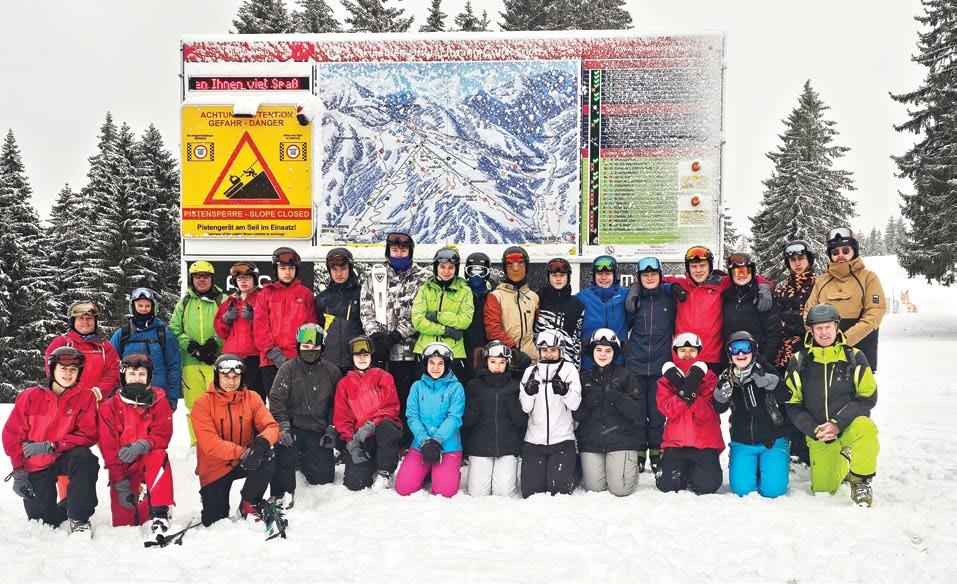
As cadets overcame their fears and developed their skiing competence, their confidence shot up dramatically. This, in turn, helped them build resilience for future adventures and expeditions.
‘Learning how to ski has enabled me to overcome fears I never knew I had,’ said Cdt LCpl James Hajdu of Haileybury College CCF. Cdt Cpl Alice Keyworth of Caterham School CCF added: ‘I’ve learned not to be scared to face new experiences.’
A sense of pride was also felt by SI Kimberley Hetherington of Slatyford Detachment who declared: ‘I’ve overcome my self-doubt and pushed myself further than I ever thought I could.’
Cdt Danica Stankiewicz of Berkshire ACF was excited to discover how much his skiing had improved in such a short space of time: ‘I could hardly ski down a nursery slope on the first day. Three days in I was parallel skiing down a Blue slope. I felt so proud.’
It was a resounding 'yes' from all the cadets when asked if they would recommend the Bavaria trip to their peers in the future.
‘So far in my cadet career, this is by far the best thing I’ve ever done. You learn so much more than skiing, regardless of your level,’ said Cdt Cpl Abigail Bone of Glasgow and Lanarkshire Bn ACF.
The cadets also enjoyed visiting another country and getting to see the stunning snowy landscape. Cpl Aleksandra Delatowska of Black Watch Bn said: ‘I loved being in Germany and having a cultural experience.’
Lt Dean Eardley of Arthur Mellows Village College CCF, meanwhile, was left in awe by the scenery: ‘The views from the top of the mountains are something I’ll remember forever.’
The ski trip was a great social activity, uniting people of all ages who demonstrated a good mental attitude and high morale. The cadets encouraged each other by fostering a light-hearted attitude towards learning to ski: ‘Laughing together after watching each other fall was a highlight,’ admitted Cdt Cpl Freya Thorne-Henderson of Godolphin School CCF. The group also appreciated the opportunity to make new friends: ‘I’ve created bonds with cadets from all over the country,’ said Cdt Cpl Kimberley Hetherington of Slatyford Detachment.
‘We’ve all grown from this experience – and not just as skiers’

‘The ski trips have shown me just how much the cadets and CFAVs can achieve through AT,’ said Chris.
‘It was brilliant to see students who haven’t skied before give it their all. Along with their memories of visiting new places, making friends and working as a team, these new skills will stay with them for a lifetime.
‘It was also heartwarming to watch their determination to get back up after a fall
and, with encouragement and support of their team, try again. I myself have gone from a novice to skiing black runs, something that looked daunting and scary at the start. We’ve all grown from this experience – and not just as skiers.’
Lasting impressions on cadets have been overwhelmingly positive: ‘Skiing has mesmerised me,’ says Cdt LCpl James Hajdu of Haileybury College CCF, and Cdt Cpl Isaac Burnett-Green of Glasgow and Lanarkshire ACF added: ‘It was an invaluable experience. There is nowhere else I’d have rather been.’


Considering joining a future trip? Here’s what to expect.
• 7.30am Team gather for breakfast.
• CCAT team, CFAVs and instructors have an early morning meeting to discuss the plan for the day and any external factors that could affect it, such as the weather.
• 8.30am Cadets regroup and are transported to the resort. They are put into groups based on their skill level.

• Throughout the morning, groups have various skills demonstrated to them before practising them until they feel competent and confident.
• 12pm Teams stop for a packed lunch. Cadets have the option to treat themselves to a cafe lunch if preferred.
• Ski for the rest of the afternoon.
• Return to the accommodation for showers and downtime before an evening meal at 6pm
• Occasionally cadets attend lectures or briefings in the evening as part of their ski training but time is still reserved for relaxing in the games room before bedtime.
Ten staff cadets took a life-changing trip to India to visit some of its iconic sites and take part in a cultural exchange with cadets from across the globe.
‘Wales has castles, but they don’t compare with the Taj Mahal’
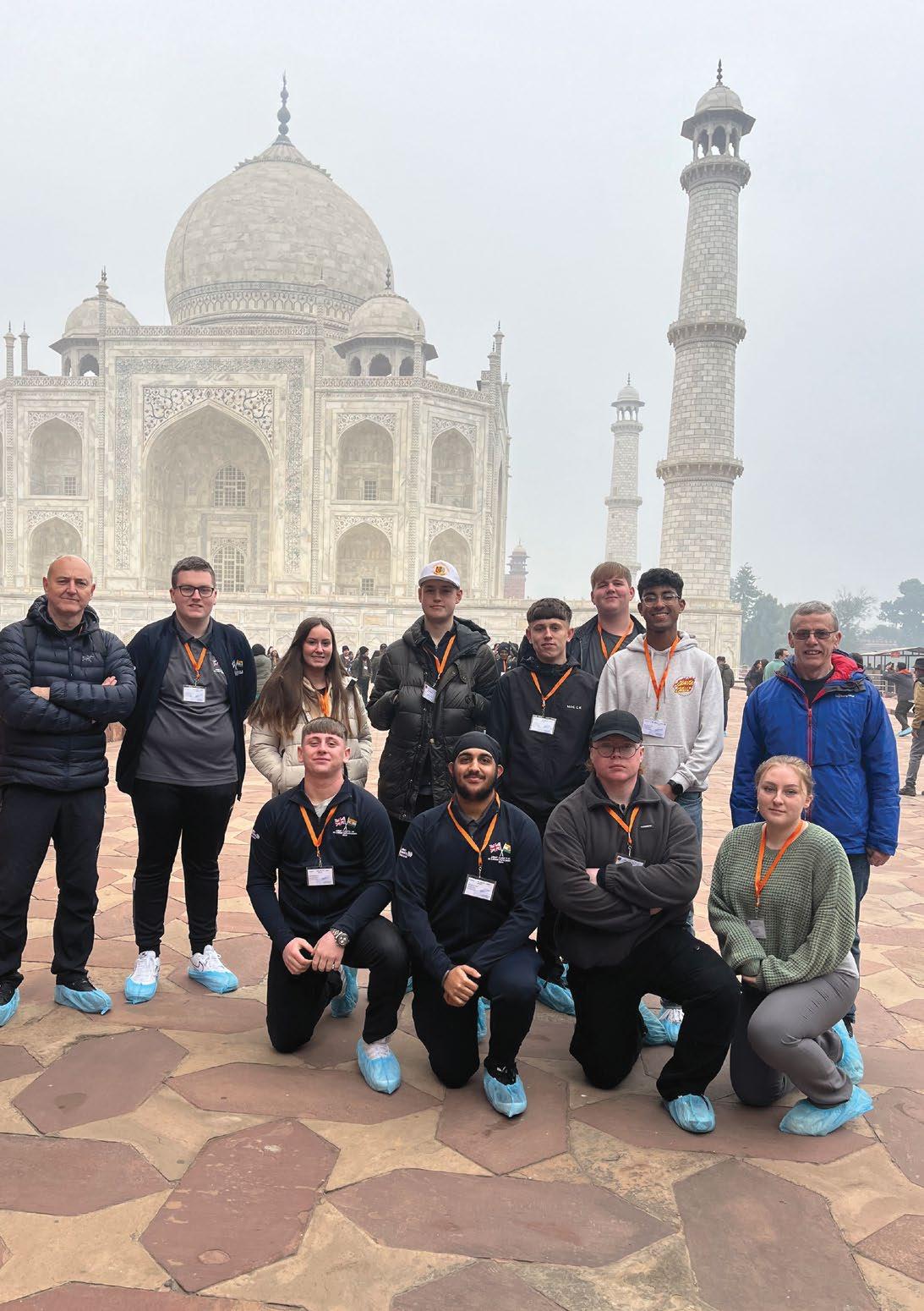
‘It was challenging but rewarding, and in the end everyone looked immaculate’
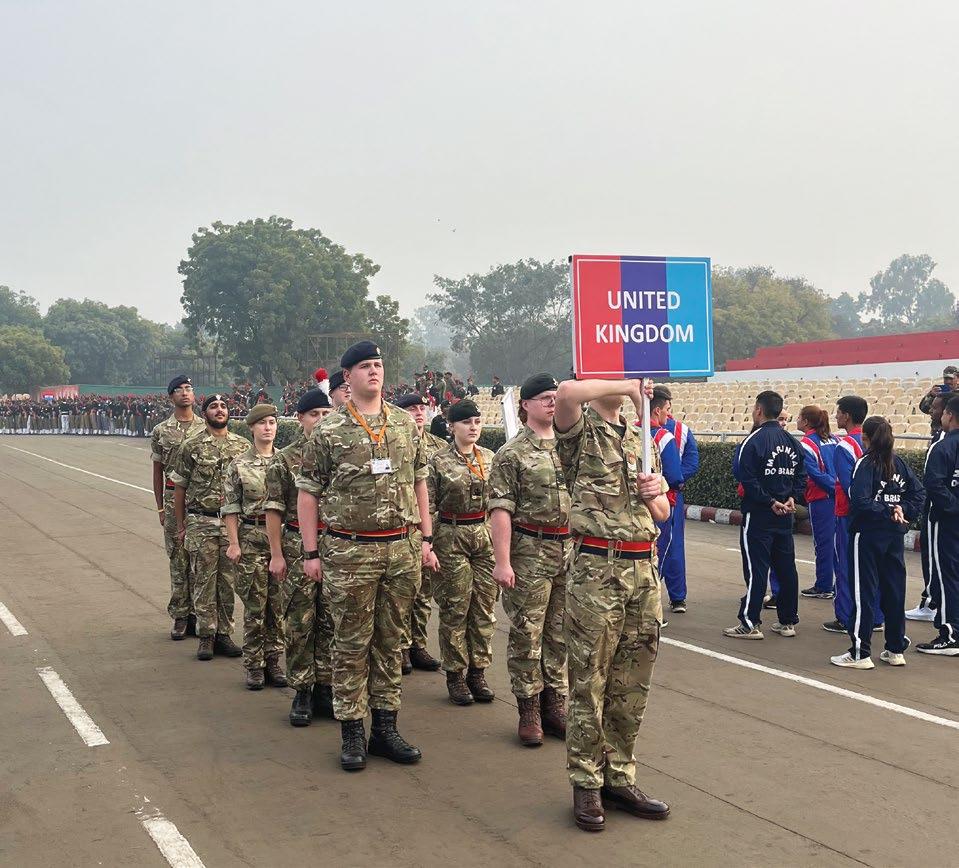
Avisit to one of the Seven Wonders of the World, a personal audience with international leaders and a display of Scottish dancing in front of cadets from 25 countries were just a few of the highlights of the third exchange trip between the British Army Cadets and India’s National Cadet Corps (NCC).
Ten Army cadets spent two days at Bramley Camp perfecting their Scottish dancing skills before flying to Delhi on 15 January. On arrival, they met and befriended cadets from 25 countries and then embarked on a three-day odyssey of northern India’s tourist trail, ticking off famous landmarks including the Taj Mahal, the Red Fort, the Amber Palace and Jantar Mantar observatory in Jaipur.
On their return to Delhi, things took a more formal turn. The itinerary included a visit to the National War Memorial at India Gate and a VIP presence at the spectacular Republic Day parade on 26 January, complete with military procession, bands, motorbike display teams and fighter jet flypasts.
• Visiting the Taj Mahal (one of the Seven Wonders of the World) and Agra Fort (UNESCO World Heritage Site)
• Marching at the NCC PM Rally
• Republic Day Parade
• Formal dinner with India's Minister of Defence Raksha Mantri Shri Rajnath Singh
• Tea in the gardens of Indian Prime Minister Shri Narendra Modi
• An audience with Indian President Smt Droupadi Murmu
• Visiting the National War Memorial at India Gate
• Participating in a dance display, performing a Scottish routine
• Shopping at Dilli Haat market

Cadets had the honour of a formal dinner with India's Minister of Defence Raksha Mantri Shri Rajnath Singh, tea in the gardens of the residence of Indian Prime Minister Shri Narendra Modi, and an audience with Indian President Smt Droupadi Murmu.
The cadets demonstrated their marching skills in a major rally on Delhi’s parade ground in the presence of the prime minister, and took part in a traditional dancing showcase by performing a Scottish routine.
Staff Cdt RSM Ehsan Iqbal (Rhiwerdin) took part in the trip during his gap year. It was his first visit to India. ‘It was something I’d always wanted to do. I wanted to show the cadets in my detachment that if you work hard enough and do the right things, you can go on great trips like that,’ he said. His highlights included sightseeing. ‘Wales has castles, but they don’t compare with the Taj Mahal,’ he said.
He also enjoyed liaising with other delegations, and being in the presence of ‘high-profile people, not just politicians but also generals, all of whom were as interested in us as we were in them’.
Staff Cdt RSM Iqbal put his communication skills to good use when the UK cadets were paired with their Tajikistan counterparts at the PM rally.
‘We had to perform an ‘eyes right’ and salute to Indian Premier Narendra Modi but there were language barriers, so I worked with the Tajik lead to explain the commands. It was challenging but rewarding, and in the end everyone looked immaculate.’
Staff Cdt RSM Iqbal aspires to pursue a career in the Royal Engineers. ‘You have to have confidence, and this trip has enabled me to grow in confidence, as well as getting a feel for how other countries do things. It helped me in ways I didn’t know it would.’
Cdt Sgt Matthew White (City of London NE Sector, 45 Detachment) was given an application form while on camp in Scotland.
‘I filled it in straight away and was overjoyed to get a place,’ he said. ‘It meant getting time off from sixth form, but they were more than happy to let me go because they saw it as an opportunity. It’s a multicultural sixth form, and they thought that participating in the trip would make me a role model.’
Cdt Sgt White especially enjoyed the relationship forged by the team with the Singaporean cadets. ‘We became very friendly and on one occasion I went on a walk exploring New Delhi with one of them. It was interesting to not only find out more about the city, but to share it with someone from a different culture.’
He added: ‘We were all looking forward to wearing service dress. To be able to go in to dinner with the defence minister and to look as good as we did was quite an experience. We could tell from the way the NCC was acting that there was a high degree of respect for the military that we don’t always see in the UK.’
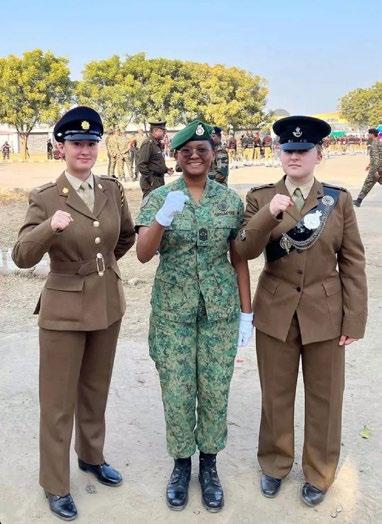
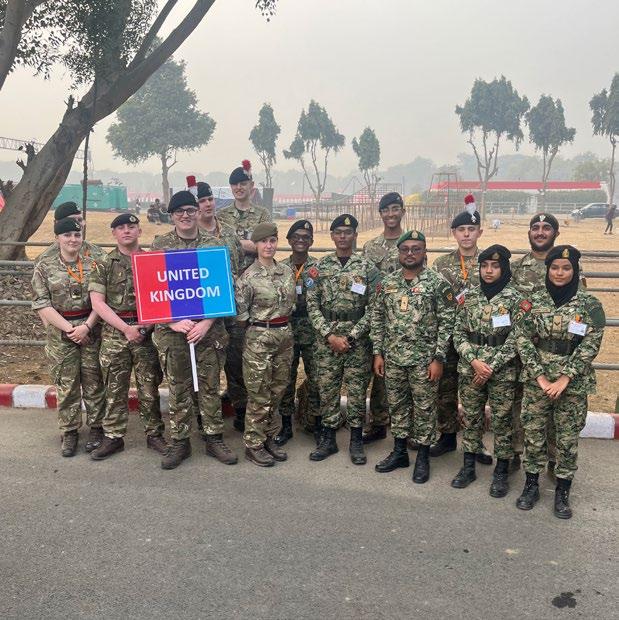
‘cadets were treated like football stars –everyone wanted to be photographed with them’
The sharing of international cultures played a major role in the event, with Staff Cdt RSM Iqbal and Cdt CSM Hughes making a presentation on the different countries of the UK, from national flags and flowers to culinary preferences such as beans on toast.
Each country had to present a traditional dance, and Cdt RSM Harnaam Singh (West Midlands) recalled how the British routine was put together during the admin days at Bramley Camp, taking inspiration from YouTube.
‘Some countries had sent cadets from dance schools, and they had obviously been choreographing their routines for a while, but none of us had any experience,’ he said. ‘We focused on the team effort and we had a great time – there’s nothing better than putting a smile on people’s faces. It was definitely a highlight.’
The party touched down on Indian soil on Capt Collins’ birthday. ‘It was the trip of a lifetime, and the cadets are lucky to have experienced it at 18 – I had to wait until I was 58!’
He praised his group as ‘an absolute credit to the Cadets and to their country in everything they did. They were completely committed.’
Indian cadets will make a return visit to the UK in July, for a three-week adventure that includes taking part in a CCF camp, adventurous training and sightseeing.

The NCC operates an annual Youth Exchange Programme with equivalent governmental and youth organisations in friendly countries to encourage an increased awareness and appreciation of each other’s cultures.
There were delegations from 25 countries: Argentina, Bhutan, Botswana, Brazil, Czechia, Fiji, Kazakhstan, Kenya, the Kyrgyz Republic, Laos, Malaysia, Maldives, Mauritius, Mozambique, Nepal, Nigeria, Russia, Saudi Arabia, Seychelles, Singapore, Sri Lanka, Tajikistan, United Kingdom, Venezuela and Vietnam.
The trip was open to staff cadets aged over 18 from around the UK. From the pool of written applications, ten were chosen from detachments in Northumbria, Wales, Bedfordshire, London, West Midlands and Manchester.
Cadets who went on the trip were: Cdt RSM Joseph Carroll, Staff Cdt CSM Charlotte Francis, Cdt CSM Deiniol Hughes, Staff Cdt RSM Ehsan Iqbal, Staff Cdt Sgt Reece Mason, Staff Cdt CSM Amelia Read, Staff Cdt CSM Karl Sanderson, Cdt RSM Harnaam Singh, Staff Cdt Sgt Jai Small and Cdt Sgt Matthew White.
They were accompanied by Capt Brian Collins, Head of Army Section at Repton School CCF, and Lt Col Billy Royle, Deputy Commandant of Manchester ACF.

Teaching, football and a wildlife safari were all on the itinerary for Ex KENYAN LION CLUB, an annual trip for sporty cadets. Find out what happened on the expedition.

Ateam of 20 soccer-mad cadets travelled to the town of Sagana in Kenya in October. Their journey entailed an eight-hour flight from Heathrow to Nairobi, followed by a four-hour 100km bus journey to the Savage Wilderness resort, which would be their home for just over a week.
The cadets worked hard at Thangathi Primary School (where pupils range from two to 17 years old), carrying out repairs, building benches and desks, and teaching a range of skills, including maths, English and science, to children and their families.
Play was also an important part of their trip. The cadets helped set up a Kenyan Football Academy for local villagers and managed a tournament. They beat home players 5-5 (3-2 on penalties), but softened the blow by donating a full strip of football kit to every child, along with other clothing, shoes and toys.
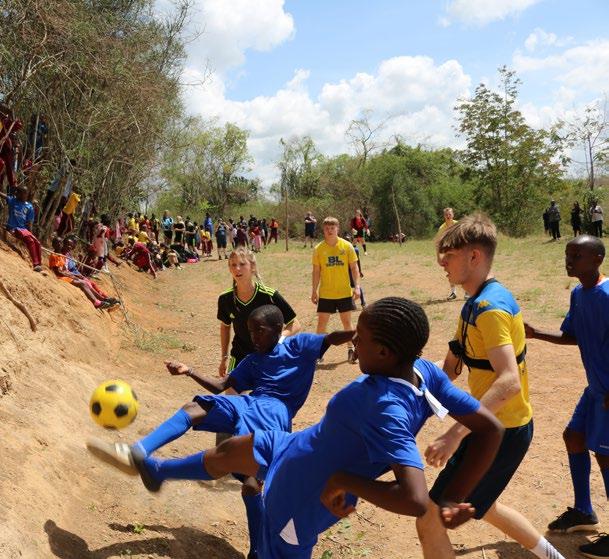
‘The cadets helped set up a Kenyan Football Academy for local villagers and managed a tournament’
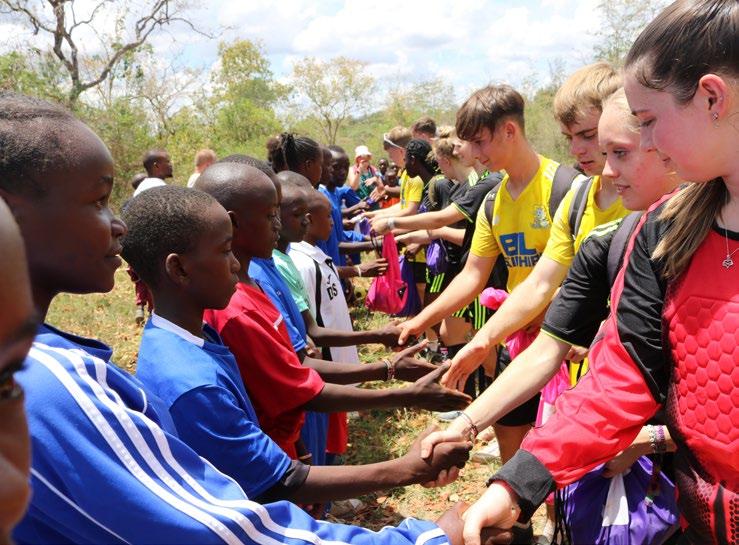
Their efforts were rewarded by the undisputed highlight of the trip: a two-day safari during which cadets saw four of the big five ticked off their i-SPY lists: lions, giraffes, rhinos and elephants. Cadets camped outdoors, with a bonfire and wildlife close by, and sampled traditional Kenyan food.
Thrill-seekers enjoyed zip-wiring over Kenya’s longest river, the Tana, and got to visit the equator and stand with a foot in each hemisphere.
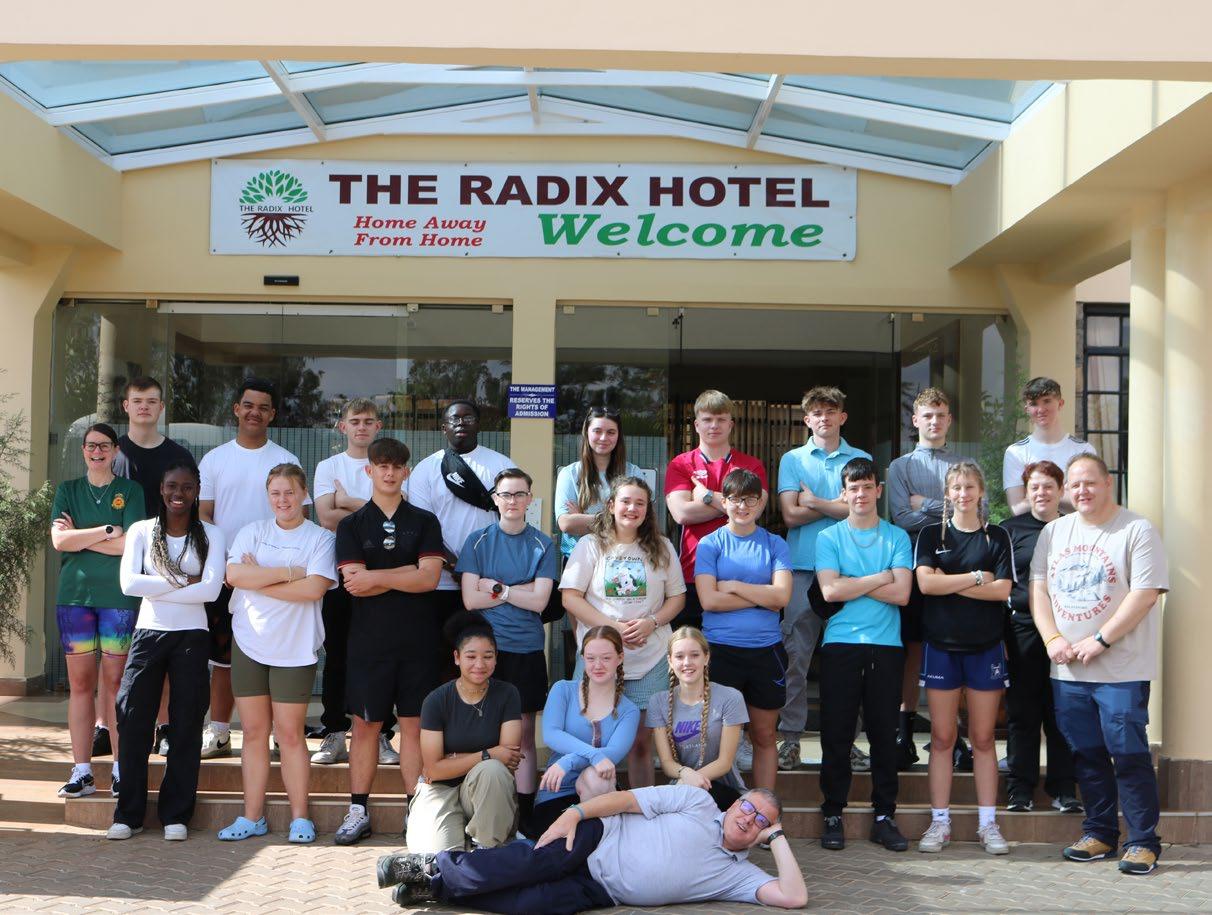
Cdt CSM Ruby Fothergill from Lancashire
ACF said: ‘This trip thoroughly changed all of our lives, and we made a real difference to the school.
‘Although there were no badges or a syllabus to check off within ACF, Kenya was about so much more than that. We created brilliant relationships with the children. We also grew in qualities such as compassion and resilience. And some cadets
were able to use Kenya as the residential element for their Gold DofE award.
‘We realised Thangathi Primary School had a lack of opportunities and resources, so we set out on a mission to raise awareness and money and to give our time and love to the children there.
‘At the beginning of the trip we observed that more than 200 students shared just three pencils. We donated loads of school supplies and the headteacher said it would keep them going for a few years!’
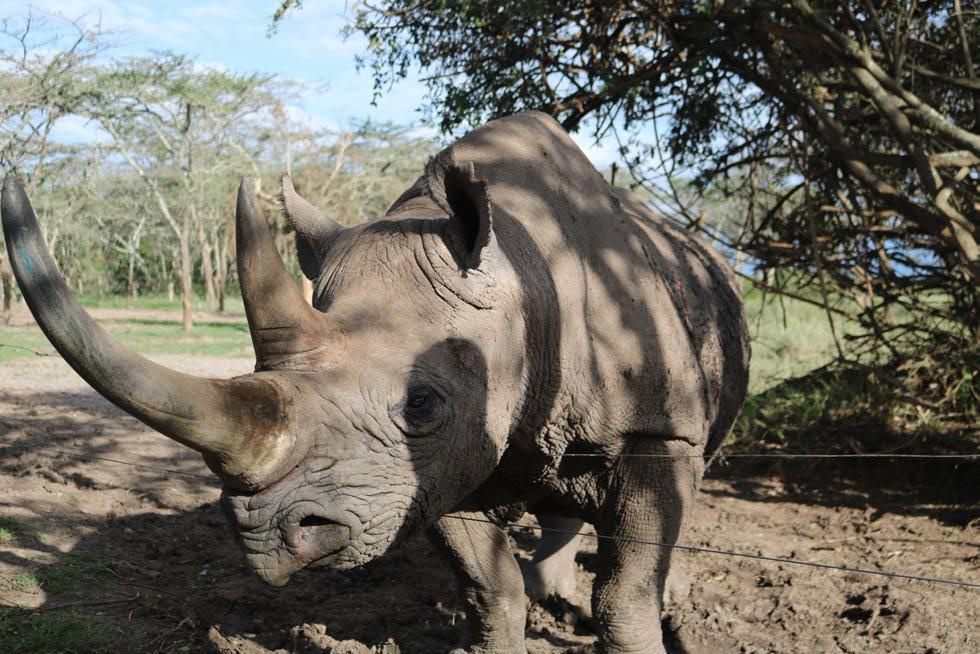
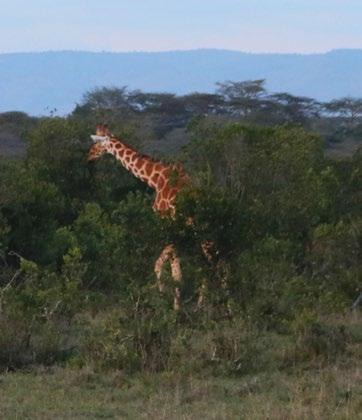
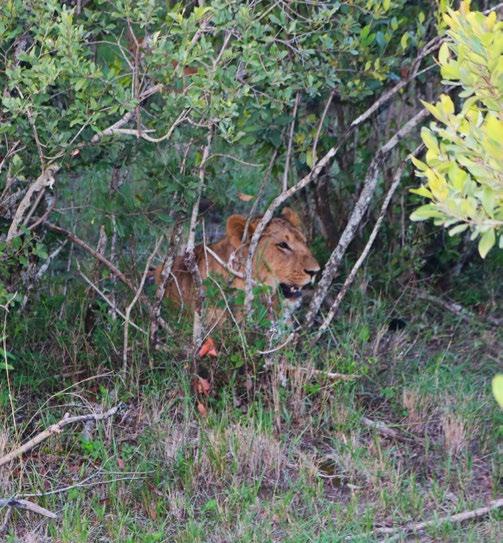

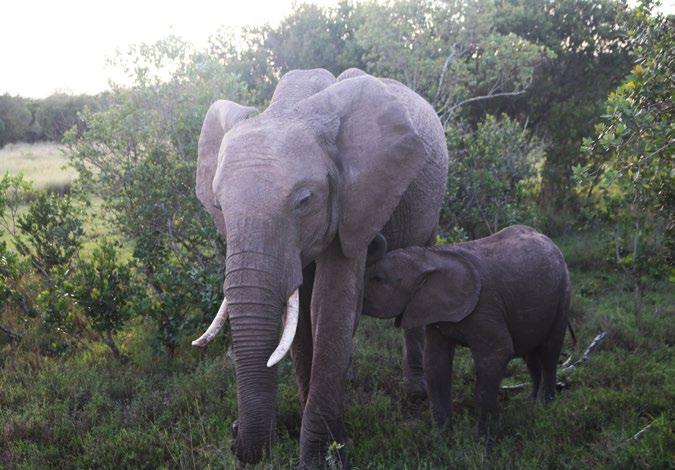
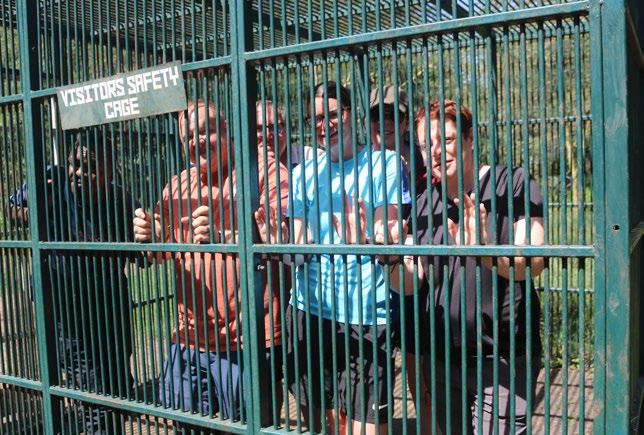
Cdt Logan Bailey from Holywell (Clwyd & Gwynedd) described the trip as a ‘once-in-a-lifetime opportunity’. He was struck by the resilience and happiness of the Kenyan children, despite having fewer material possessions. ‘It made me appreciate the privileges I enjoy back home, and reminded me that I shouldn’t take them for granted,’ he said.
‘This journey opened my eyes to a world beyond my own, and I’m very grateful to everyone who made the experience possible.’
‘More than 200 students shared just three pencils’
While the Army Cadet Charitable Trust (ACCT UK) subsidised half of the cost of the trip, cadets raised the rest individually by means of crowdfunding campaigns. Cdt Sgt Maja Wabich of Bishop’s Stortford Detachment, 1 Company, Bedfordshire & Hertfordshire ACF, was selected after representing the Eastern region at the National Army Cadet Force Football Championships. She raised £600 via JustGiving.
The cadets were accompanied by adult volunteers including Maj Alison McGonigle (Argyll & Sutherland). ‘I was blessed to have done something very similar in my teens, and going back as an adult was very rewarding,’ she said.
‘It was amazing to support young people – some from very privileged backgrounds, others less so – through a life-changing experience like this. For them to come face to face with poverty on this scale was eye-opening.
‘I think it made them consider how materialistic we are as a society, and how lucky they are to have the food, clothing, education and infrastructure they do in the UK. For some of them, it has determined what they want to do in the future, such as working for a charity or NGO.
‘They threw themselves into everything. It was overwhelming for some – the emotions were very raw. Given how much they experienced, they behaved phenomenally and were an absolute credit to the Army Cadets and the UK.’
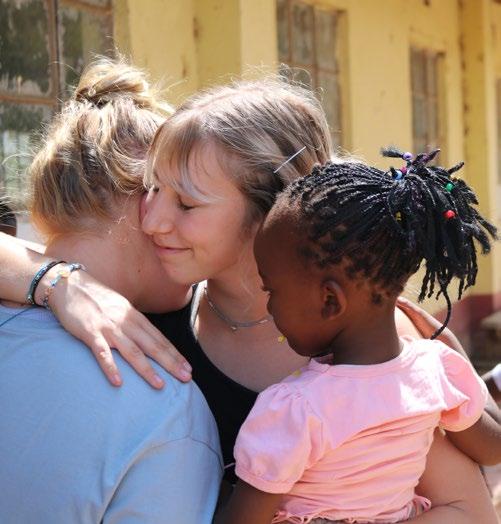
‘We donated loads of school supplies and the headteacher said it would keep them going for a few years!’
George Babasola, Lothian & Borders Bn ACF; Logan Bailey, Clwyd & Gwynedd ACF; Grace Bradley, Argyll & Sutherland Highlanders Bn ACF; Cdt RSM Derek Blunten, West Lowland Bn ACF; Cdt LCpl Lucas Chisnall, City and County of Bristol ACF; Cdt LCpl Ruby Ellis, Bedfordshire & Hertfordshire ACF; Cdt LCpl Lily Faulkner, City and County of Bristol ACF; Cdt Sgt Ruby Fothergill, Lancashire ACF; Adam Harvey, ACF; Cdt CSM Eilidh Howard, Lothian & Borders Bn ACF; Jayci Kauraro ACF; Cdt CSM Cameron King, Shropshire ACF; Aliyah Monthe, ACF; Cdt Cpl Odette Mundi, Northumbria ACF; Cdt Sgt Phebe Sleath, Shropshire ACF; Cdt Cpl Evan Smith, Clwyd & Gwynedd ACF; Maja Wabich, Bedfordshire & Hertfordshire ACF; Harry Walton, Durham ACF; Erin Worth, Lancashire ACF; Cdt SSgt Benjamin Wright, Bedfordshire & Hertfordshire ACF.
SMI Christopher Burns, Durham ACF; Lt Col Henry Canavan, Argyll & Sutherland Highlanders Bn ACF; Andrea Kerr, ACF; Lt Louise McCauley, Lothian & Borders Bn ACF; Maj Alison McGonigle, Argyll & Sutherland Highlanders Bn ACF.
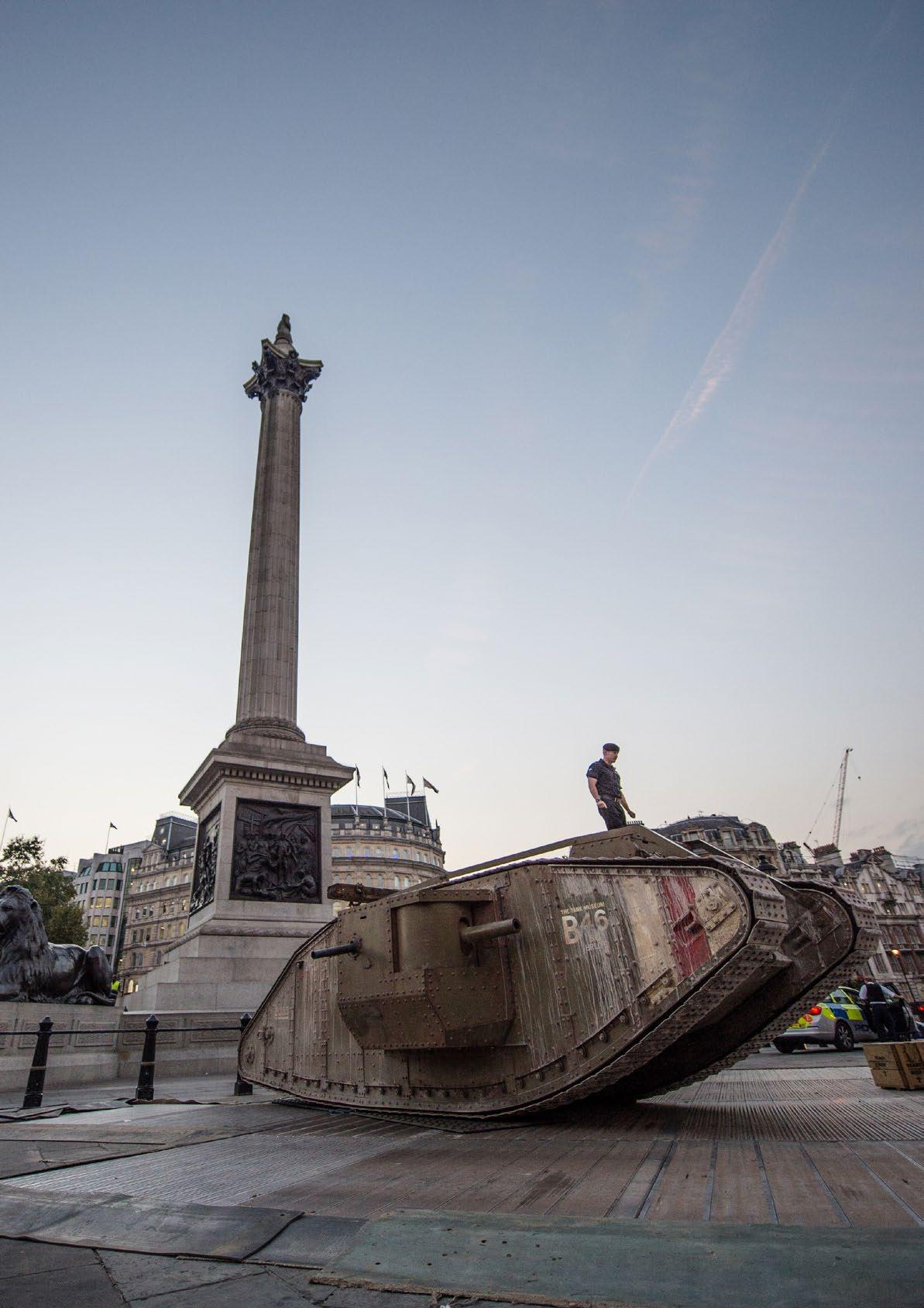

Contemporary Army tanks can cross long distances rapidly and engage targets at ranges unimaginable in WWI. 2Lt Charlie Thornton looks at how the modern metal warriors owe a debt to their clunky forebears.
 Above and right: a replica of a British First World War tank in Trafalgar Square for the 100 Years Of The Tank: The Battle Of Flers-Courcelette Remembered display
Above and right: a replica of a British First World War tank in Trafalgar Square for the 100 Years Of The Tank: The Battle Of Flers-Courcelette Remembered display
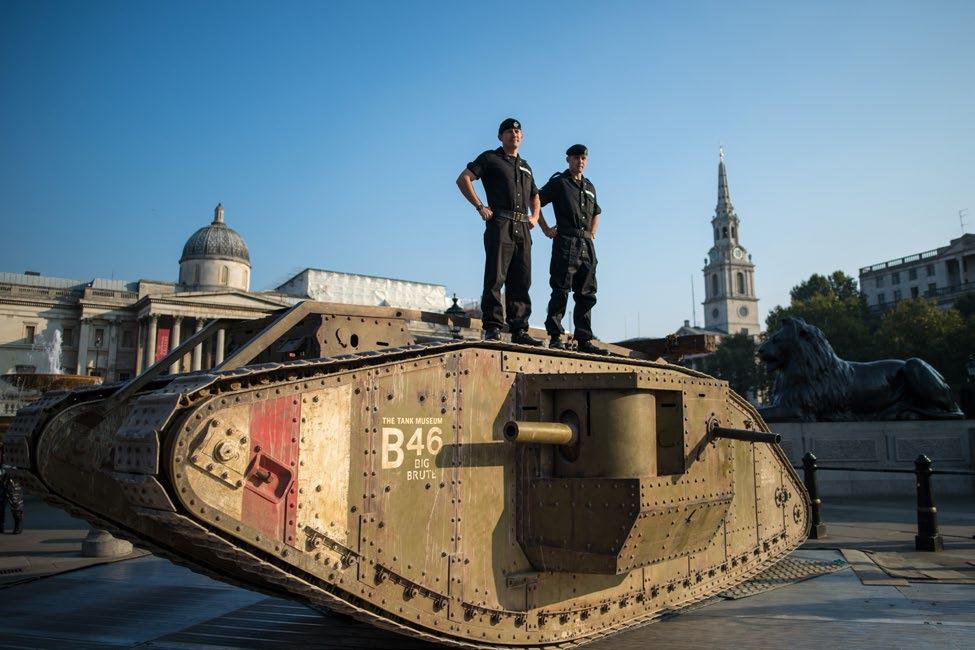
‘In the muddy battlefields of the First World War, the British sought a solution to the deadlock of trench warfare’
From the slow-moving steel giants of the First World War to today's modern Main Battle Tanks (MBTs), the evolution of British tanks represents more than a century of technological advancement and innovation. There’s a world of difference between the lumbering 28-ton Mark 1 used to cross the trenches and the 72-ton Challenger 2 used by the British Army today.
The beginning of the tank lies in the muddy battlefields of the First World War, where the British sought a solution to the deadlock of trench warfare. Introduced in 1916, the Mark 1 was the world’s first combat tank, embodying a novel concept in warfare. Although slow and mechanically unreliable, it allowed the British to cross and gain ground that was previously impassable to infantry.
Crewed by eight soldiers from the Tank Corps, freshly formed from the heavy branch of the Machine Gun Corps, the Mark 1’s primary role was to support infantry by crushing barbed wire and providing a moving shield against small arms fire. It had a top speed of 3.7mph, armour 12mm thick and formidable firepower for its time, thanks to two six-pounder guns and four machine guns.
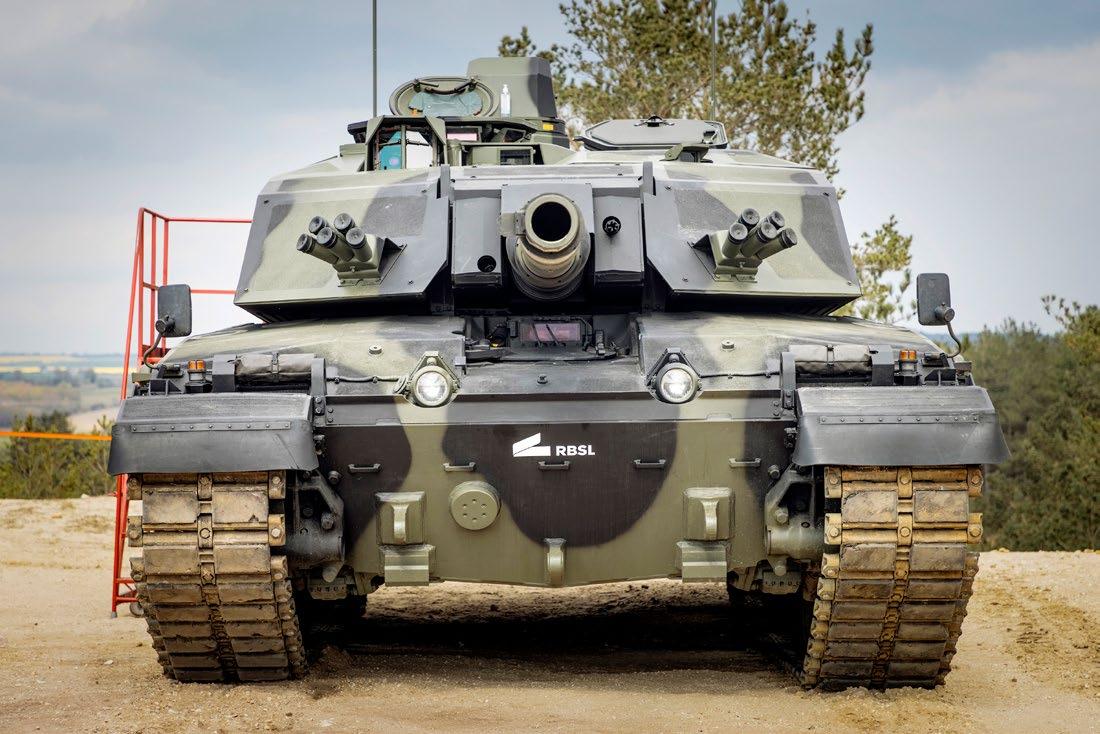
Post-war British tank development continued, focusing on improving armour and mobility. Models included the inter-war Matilda, a small two-crew tank with a top speed of 15mph; and Valentine, which had four crew, a top speed of 15mph and armour 65mm thick.
However, it was during the Second World War that British tanks truly evolved. The Crusader tank, for example, played a crucial role in the North African campaign, emphasising speed and manoeuvrability.
Its 340 horsepower (hp) engine gave it an impressive top speed of 25mph on road and 15mph cross-country, while its 500-litre fuel tank gave it an operational range of 141 miles on road and 61 miles cross-country.
The war in Europe, however, required a different type of tank. The German Panther and Tiger series were proving stiff competition, so the British required a tank with more punch.
With its heavy armour and versatility, the Churchill tank (manufactured by Vauxhall) became one of the most successful British tanks of the war, serving in various roles from infantry support to
specialised tasks like mine clearing. It had a maximum weight of 40.7 tons and a 75mm main gun.
Being much heavier than the Crusader, its 350hp engine produced a top speed of 15mph but, at its thickest, the armour was over 100mm and provided the crew better protection than any British tank before.
The Cold War era saw a significant shift in tank design philosophy, leading to the development of the Centurion – often considered the first MBT.
The Centurion combined speed, armour and firepower, proving its worth in various conflicts around the globe. It introduced innovations, such as sloped armour for increased effectiveness against armour-piercing rounds, and was continuously upgraded with 13 different models brought into service over its lifetime.
Weighing in at 62 tons, it boasted a 120mm main gun, offering a considerable improvement in firepower, and a 750hp engine with an operational range of 310 miles. It all made for a tank that was far more versatile than any of its predecessors, which goes some way to explaining why it remained, in some form, the main tank of the British Army for 30 years.
Image: UK MOD © Crown copyright 2024
Photographer: Cpl Daniel Wiepen RLC (Army Photographer)
The culmination of British tank design is epitomised by the Challenger series. Introduced in the 1980s, Challenger 1 marked a significant leap in technology. Its Chobham armour was renowned for its exceptional protection.
Its successor, Challenger 2, continues to serve as the backbone of the British Army’s armoured forces. As well as advanced Chobham armour, features include a 120mm rifled gun capable of firing a range of specialised munitions, and state-of-the-art targeting systems that allow the tank to engage area targets at 5km and tank targets at 2km.
It has a 1200hp engine and a 1700-litre fuel tank, giving it a top speed of over 30mph and an operational range of 340 miles. It also has separate sighting systems for the commander and gunner, allowing both to operate independently, as well as a thermal sight for operating at night and in adverse conditions.
‘Separate sighting systems for the commander and gunner, allowed both to operate independently’
Place a First World War Mark 1 tank next to a modern Challenger 2 and you may struggle to see the resemblance between the two. And yet, despite their differences, not to mention more than 100 years of innovation and upgrades, under the surface they are the same in both utility and essence.
Tanks were designed to provide protection, mobility and firepower to their crews, and this is exactly what they still do. With Challenger 3 in production for the British Army, featuring even more upgrades and versatility, the future of the tank looks as promising as its past.
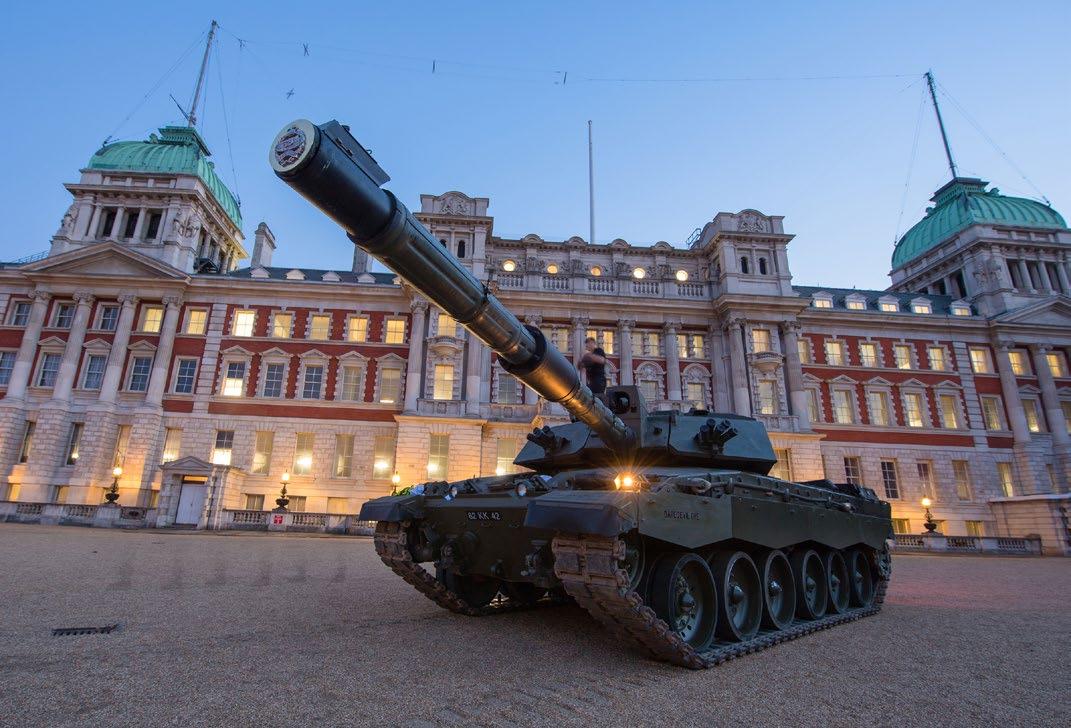 Top: Challenger 3 Main Battle Tank. The latest edition to the armoured family of the British Army. Displayed during PROJECT HERMOD 2 Bottom: Challenger 2 sits on Horse Guards Parade during the Tank 100 Celebrations. The British Army sent tanks into action for the first time at the Battle of Flers-Courcelette, part of the Somme offensive, changing the nature of warfare forever
Top: Challenger 3 Main Battle Tank. The latest edition to the armoured family of the British Army. Displayed during PROJECT HERMOD 2 Bottom: Challenger 2 sits on Horse Guards Parade during the Tank 100 Celebrations. The British Army sent tanks into action for the first time at the Battle of Flers-Courcelette, part of the Somme offensive, changing the nature of warfare forever

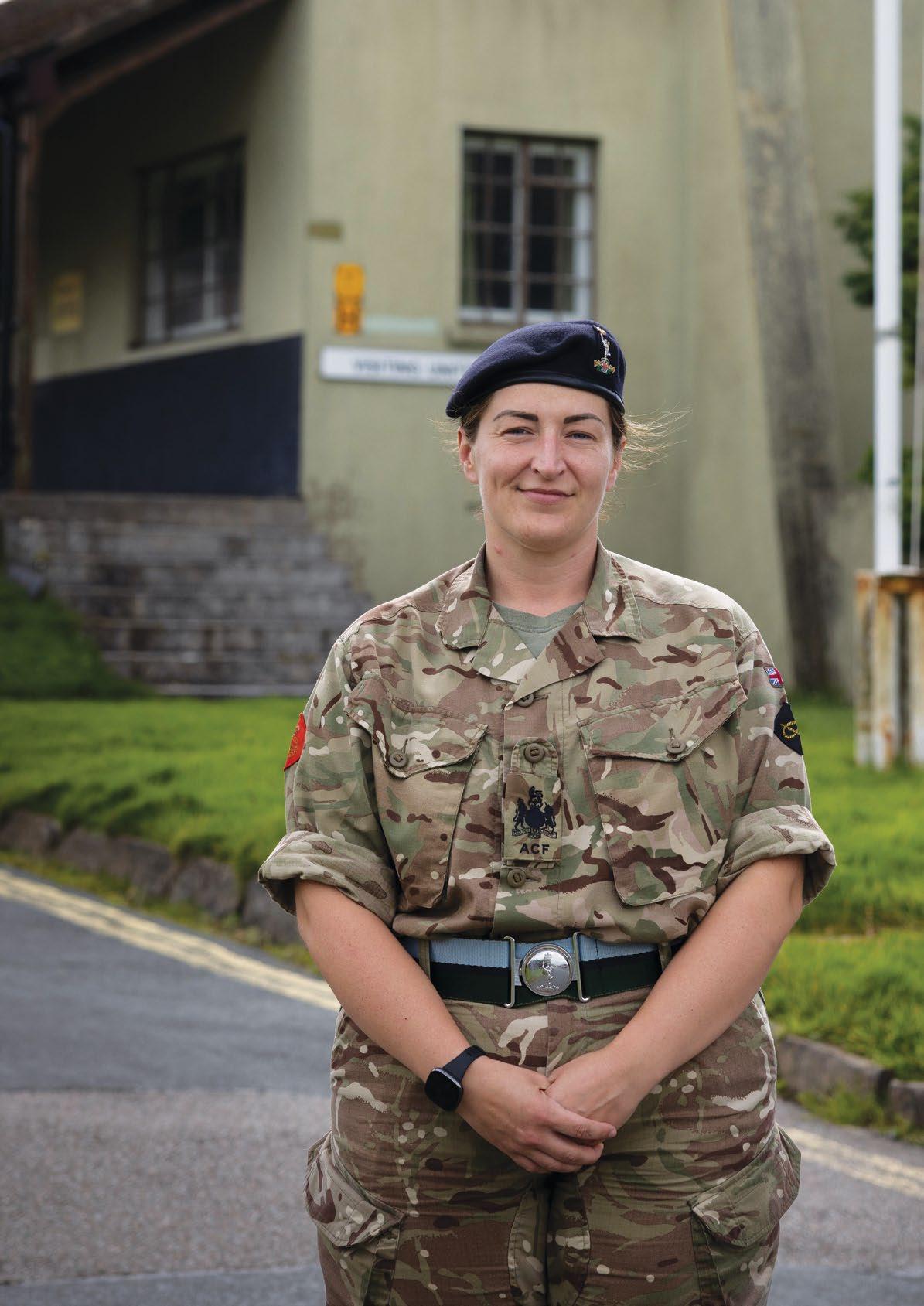
To mark International Women’s Day (8 March) we caught up with two female CFAVs who made history when they took up senior roles.
‘When I joined, the Army Cadets was considered to be very boyish’

Shannon, 34, is the Regimental Sergeant Major Instructor for Staffordshire & West Midlands (North Sector) ACF. Last year she became the first woman in her County to take up the position. She explains how the Army Cadets has helped her thrive and branch out into new and exciting roles.
I’m responsible for the organisation of the non-commissioned officers (NCOs) in the County, making sure there is good discipline and they’ve got a support network. I’m an impartial view. If there’s something they need support with – that perhaps they feel they can’t speak to Company staff about – I give them help and guidance.
I’m the first female RSMI in Staffordshire & West Midlands ACF. My appointment to the role is part of a positive trend in recent years, which has seen more women across the organisation take on leadership roles. Today, female adult volunteers play a crucial part in running one of the UK’s most successful youth organisations.
Between 2002 and 2008 I was in Stockton Brook, part of D Company, in Stoke-on-Trent. Joining the Army Cadets was considered to be a very boyish thing to do as girls tended to go to Brownies and Guides.
At that time, only about 25 per cent of cadets were female; today it is closer to 40 per cent. As more have joined, word of mouth has made it much more socially acceptable.
At first, I wasn’t especially confident or outgoing and I wasn’t 100 per cent sure I enjoyed it. I left for about two months, then missed it so much I went back.
I rejoined as an adult volunteer in 2014 and focused on personal and career development, which enabled me to develop the skill set I needed to progress to become RSMI.
I was 25, had reached a turning point in my career and personal life and was asking myself, What do I want to do? I had a box of old Army Cadets stuff under my bed – if you’ve ever walked into a Cadet store, there’s a distinctive smell and this box smelled just like that. It was so nostalgic I thought, Right, I’m gonna go back.
The Army Cadets played such a big part in my life when I was growing up. I know it’s a cliché but it’s about giving back to the organisation.
Female CFAVs can grow and do things out of their comfort zone, just like our cadets do. As a cadet, I loved shooting –where else do you get the opportunity to do that? Now, as an adult volunteer, there are similar opportunities to explore. For example, I’ve been skiing for the first time this year. I’d always fancied it but never had anybody to go with. I booked a CCAT course – which was very reasonably priced – and had a brilliant week with a group of people I’d never met before.
Similarly, a couple of years ago I started climbing. We had a climbing wall but no supervisors at one of the detachments, so I started working towards a qualification.
Young people walk through the door at the age of 12 and often won’t say boo to a goose. You watch them develop in confidence until they leave at 18 as a completely different person. You just know you’ve made a difference, however small, and that’s amazing.
A lot of young people simply come to develop practical skills, confidence, discipline, motivation and leadership. But for cadets who want to have a military career, we can support them with that.

The core syllabus has broadened beyond fieldcraft and skill-at-arms training to include other areas like adventurous training, DofE, music and more. It opens up the avenues that cadets and volunteers can pursue. The additional experiences offered, alongside Army-specific activities, are fantastic for everyone.
Over the next three years, my primary focus is to make sure all adult volunteers, regardless of gender, background, rank or experience, feel supported and appreciated.
Eventually, I would like to be the County Training Officer. While in post, I can go through the ACCB (Army Cadet Commissioning Board) and do my IOT (Initial Officer Training), meanwhile deferring the commission. As soon as my tenure is up, I can hand the role of RSMI over to somebody else and my training will already be done.
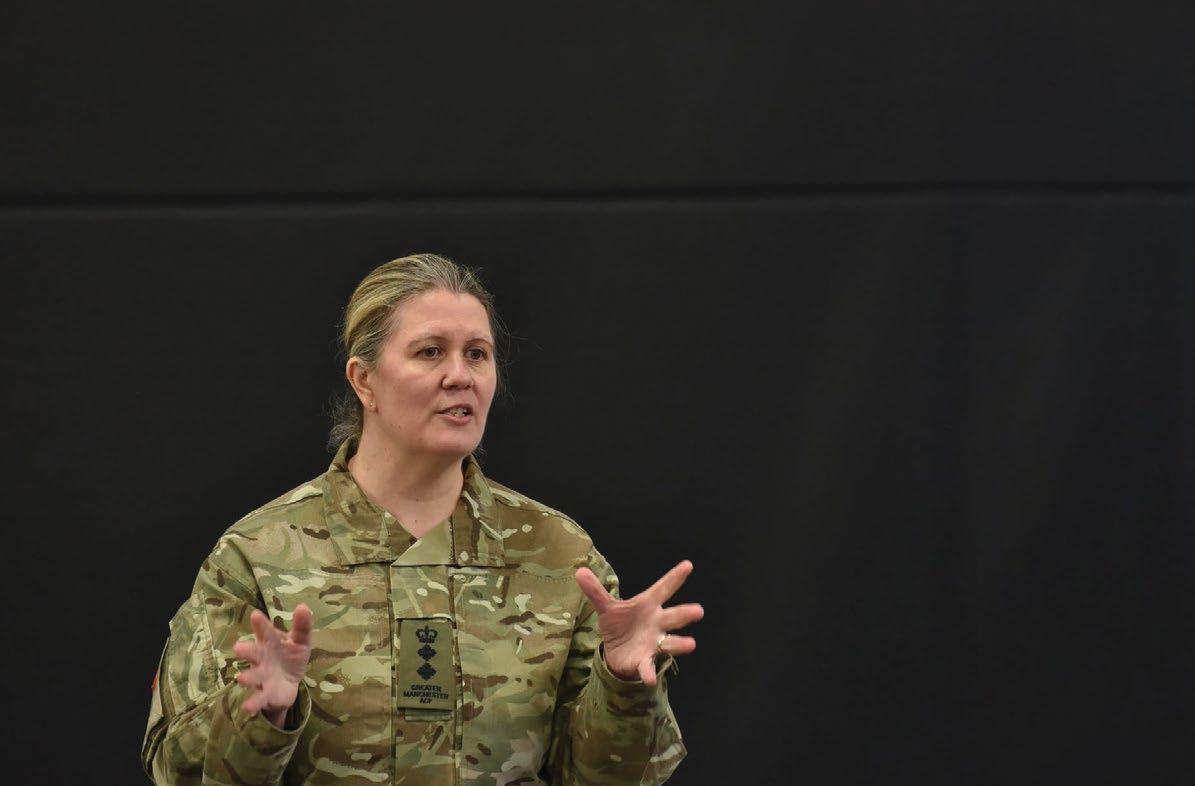
Last October, Colonel Catherine Harrison left Greater Manchester ACF – where she had made history as its first female commandant – to take on a new challenge as Regional Colonel Cadets for the North West. She explains why it’s essential that girls and women are encouraged to reach their potential within the Army Cadets.
I joined Cadets at 14 and absolutely loved it. In fact, I enjoyed it so much that I later joined the Army. I was awarded a sixth-form scholarship and went to Sandhurst in 1994 but was medically discharged from the Army in 1995 following a back injury. I was devastated, but thankfully I could return to the Army Cadets as an adult volunteer with Gloucestershire ACF.
I went on to train for a career in human resources and have since worked in leadership development, organisational
‘We all benefit when everyone has equal opportunity to thrive’
performance and staff engagement. I’ve also continued to volunteer with the Army Cadets, including as Commandant of Greater Manchester ACF and now Regional Colonel Cadets for the North West.
Gender is just one of many ways we differ from one another. You could liken people to jigsaw pieces: we have similarities and differences, we’re all completely unique and each of us is essential to the bigger picture.
If you don’t include every piece in a jigsaw, it’s incomplete and never reaches its potential. Diversity – in people as well as in things like food, music and culture – enriches our lives. We all benefit when everyone has equal opportunity to thrive, in the Army Cadets and in every other aspect of life.
Theodore Roosevelt is quoted as saying: ‘Nobody cares how much you know, until they know how much you care.’ Experience and knowledge are helpful in leadership, but so is compassion, being able to adapt to the needs of all your team members and being able to empower them and advocate for them.
I’m spending the first few months in my current post visiting the counties in the North West, hearing about the challenges they’re facing and finding out what they need from me, which will directly inform my approach to the rest of my tenure. So, I’d encourage other leaders to start by simply listening without judgement, so people feel safe telling you what, if any, support they need. Then you can respond accordingly.
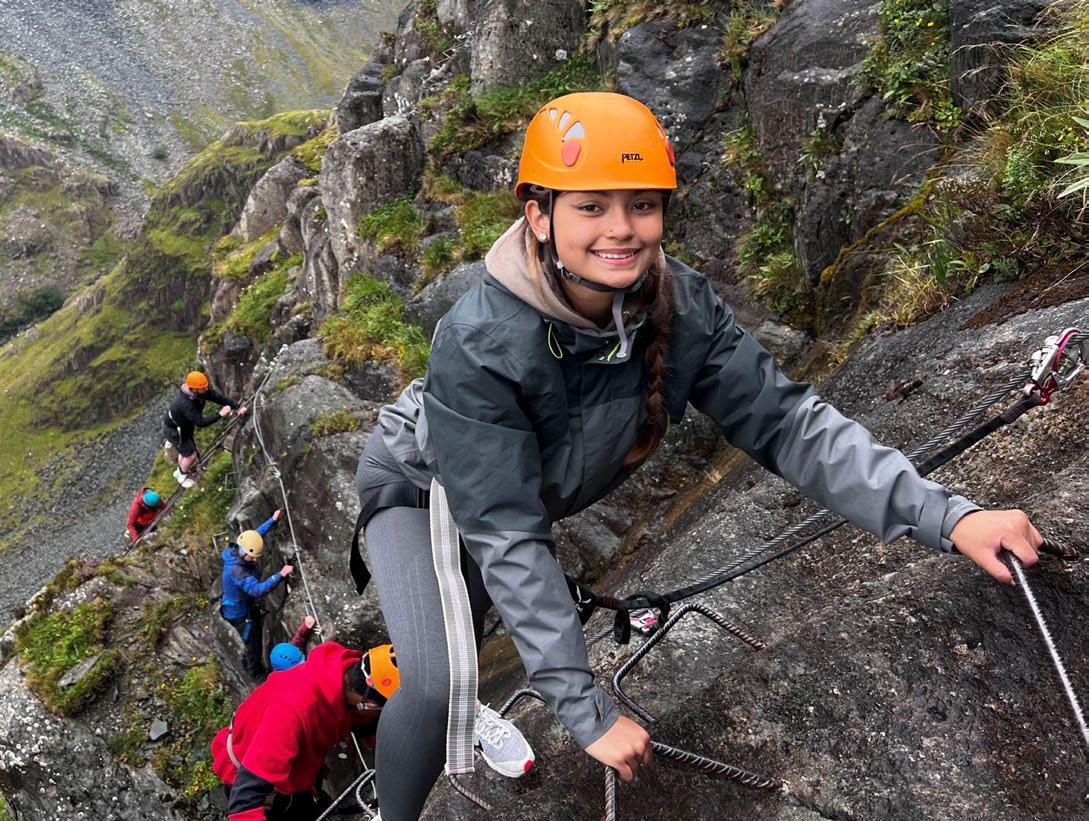
The Ulysses Trust provides support and funding to encourage challenging and adventurous activities by members of the Volunteer Reserve and Cadet Forces. We welcome applications from units across the UK to undertake expeditions of all shapes and sizes. We support a wide range of activities in the UK and abroad including trekking, exploring, mountaineering, canoeing, sailing and diving. We are now supporting Cadet Force Adult Volunteers to attend Adventurous Training qualification courses to support future expeditions. Find out more at ulyssestrust.co.uk




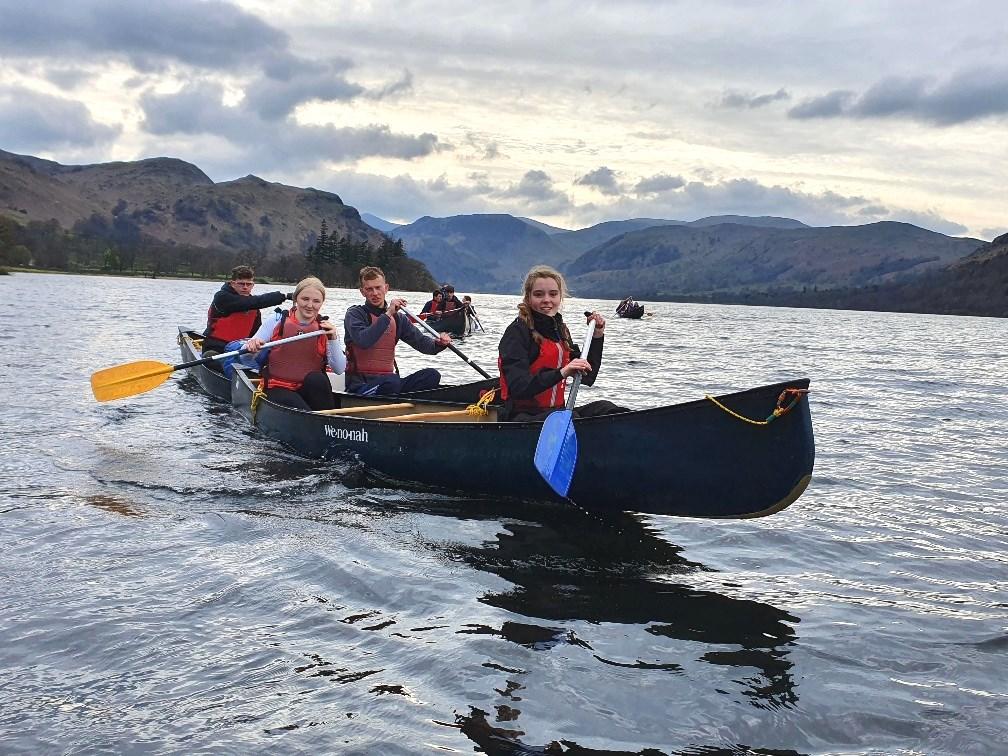

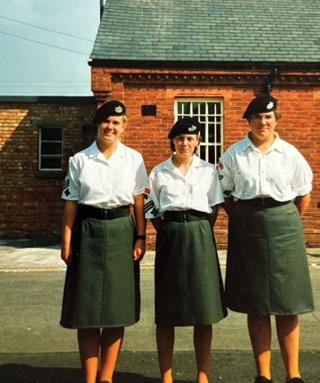
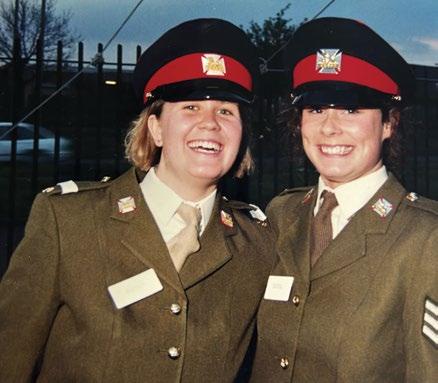
It’s important to be mindful of any unconscious stereotyping in our organisation. For example, when referring to a cadet RSM, county RSMI or a commandant, we are still hearing what ‘he’ does or ‘he’ says.
This could make it more difficult for women and girls to see themselves in those roles. Being alert to gender-neutral language, such as using ‘they’, rather than ‘he’ or ‘she’, can help to level the playing field.
Gender equality among cadets has improved greatly over the years, but there are still some disparities among adult volunteers, with not enough women in senior appointments. The opportunities are there, so we need to explore why women aren’t taking them.
Could it be that family or care commitments alongside a full-time job make turning up to parade on time every week a challenge, never mind going away on overnight camps or taking on the responsibility of a higher rank? Or are there other reasons?
The expertise and experience of every woman and girl in the Army Cadets is hugely valuable, so we need to listen more closely to what individuals
‘The opportunities are there, so we need to explore why women aren’t taking them’
need and be willing to adapt appropriately. That doesn’t have to mean sweeping changes; small adjustments may make a big difference.
Absolutely! I’d like to recognise all the amazing women and girls. Together with our male counterparts, we’re part of a fantastic organisation which is full of opportunities to explore, develop, learn and have adventures. Each of us brings something unique and valuable to the Army Cadets, and I encourage you to discover, share and celebrate those qualities in yourself and empower others to do the same.
Left to right: Catherine as 2Lt Hemmings with SMI Chris Blick (now deceased) at Annual Camp in 1997; Catherine as Cdt Cpl Hemmings with Cdt Cpl Debbie Cartlidge and Cdt Cpl Marie Nevinson at Napier Barracks, Folkstone, in 1991; Catherine as AUO Hemmings with SSI (now Capt) Vicky Longworth at Eastern Avenue ARC, Gloucester, in 1996
Find out about the history of the Army Cadets with National Colonel Cadets Ashley Fulford OBE and then take our test for a chance to win a high-octane Ninja Warrior UK session.
How important is it that cadets know about the history of our organisation?
While we don’t want to live too much in the past, it’s important for a modern-day cadet to have a good understanding of where we have come from and how we’ve evolved as an organisation.
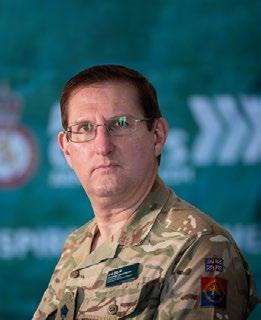
What is one of the biggest changes in the Army Cadets in recent years?
The offering we once provided for young people was based around Army activities such as fieldcraft, shooting and drill. Now there’s a menu of activities that serves the needs of all young people. That there is so much for them to choose from helps with the retention of cadets.
When my daughter was a 12-year-old cadet she loved to put on camouflage cream and crawl around in the bushes but, by the time she was 15, it appealed to her less. While some teenagers continue to enjoy the Army activities, others, like my daughter, find plenty of other things to engage with, such as DofE, Ten Tors and music.
Epsom College Cadets in 1906How important was it for the Army Cadets to take part in the pilot Duke of Edinburgh’s (DofE) Award in 1956?
When the late Duke of Edinburgh came up with the concept of the DofE Award, we were one of the first organisations to help pilot it and we have been in step with it ever since.
Our latest syllabus revision means that, as long as someone follows it, they will achieve Bronze DofE. Before 2022 they would have had to do a few more additional activities to achieve a Bronze DofE. We are proud to be a lifelong DofE partner and to have been able to modify our syllabus to fully embrace it.
you remember when girls first joined the Army Cadets?
I certainly do – it was 1980! There was a pilot scheme where ten units across the UK were selected to each take ten girls. One of those units was Torrington ACF in the South West where I also attended as a cadet. The reason I remember this so clearly is that one of that first intake of girls is now my wife – of 37 years!
For those girls it was almost like a club within a club. For instance, when we camped out they would be in a field half a mile away. However, it soon became apparent that many of these female cadets made absolutely excellent senior cadets as they moved up through the organisation. When I look back it’s easy to see that the addition of female cadets has made us a better organisation.
what way did those first 100 girls make history?
Those girls (now adult women) should feel proud to be pioneers of change. It was about so much more than just allowing females to join the Army Cadets. It was a significant moment: the Army Cadets was opening itself up to moving with the times and getting in step with the way society as a whole was changing.
This was the first of many changes that the Army Cadets became open to and it led the way for the organisation to embrace all young people no matter their background, gender identity or sexual orientation. It was a massive change at the time, especially for that generation of adult volunteers.
How did
The great thing about our Cadet Training Centre is that it always allows for best practices and training excellence to be shared with adults and senior cadets from different parts of the country. It has always set a high bar, ensuring a safe, competent and first-class standard of training delivery to our cadets in the Counties.
Although the names of many of the courses might seem familiar to those who passed through CTC in the early days, the course content has greatly increased and the number and type of courses has had to adapt to the growth of both the ACF and CCF.
The CCF used to be associated with private schools and young people who came from wealthy families. The community ACF, on the other hand, was often perceived as being for young people who went to comprehensive schools and were from lower income families. However, in 2012, the government launched the Cadet Expansion Programme (CEP) which aimed to form new cadet units within English state-funded secondary schools, particularly focusing on those in areas of high deprivation.
Since 2012, 362 schools have been approved to establish a cadet unit. This has completely changed the shape of the CCF from being an organisation where private school contingents outnumbered state school contingents, to now being one where state school contingents are in the majority.
These days CCF and ACF cadets get pretty much the same Army Cadets experience and, if the young people are next to each other in uniform, no-one knows the difference. I’m glad to say the Army Cadets offers access to more young people than ever before and from all different sectors of society.

The syllabus we have now is a derivative of the syllabus we introduced in 1976, which was refreshed in around 1990. It’s been around in its core format for a long time but the reason for having the major refresh in 2022 was to remain contemporary, relevant and progressive.
We’ve updated some of the content, language, approach to training and delivery. It wasn’t just about looking in the rear-view mirror; it was also about being fit for purpose for the future.
We’re embracing everything around diversity and inclusion, as well as focusing on mental, physical and spiritual wellbeing. We’ve revamped the syllabus to make it contemporary and are developing a culture where everyone feels valued and has a place.
Underpinning all that, we’re ensuring our leadership is well equipped and that we have a safe and protective environment for all our young people. What we are doing today will affect the generations of cadets and CFAVs who come after us.
We need to hold on to our core values, standards and beliefs such as respect for others, discipline, selfless commitment and courage. We need to evolve with the times yet still deliver training which fosters leadership, self-reliance and confidence.
2024 is a difficult time for many young people. They hear the news about failures in our establishments such as the police and the post office, the cost-ofliving crisis, the war in Ukraine and may feel quite worried. Against difficult backdrops, the Army Cadets has historically provided a safe haven and stability for many young people, and will continue to do so
His Majesty King George VI in his capacity as the Captain General of the CCF. He was inspecting part of the Signal Platoon of Portsmouth Grammar School CCF at Bourley Camp, Aldershot, on 9 August 1948 Image: Portsmouth Grammar School Archive
Fancy a fun-filled session at a Ninja Warrior UK Adventure Park, based on the hit ITV show? Take our test and you could be in with a chance of winning a high-adrenalin hour-long session.
In partnership with Ninja Warrior UK, we have a glut of tickets to give away. Eight winners will each win a pair of tickets so they can take a friend or family member along to join them in testing their ninja skills while climbing, balancing and swinging across obstacles or bouncing on an inflatable.
There will be two winners for each of the following sites: Walsall, Liverpool, Leeds and Bristol. Tickets include one hour’s admission and a pair of Ninja Grip Socks to wear for the Mount Sasuke challenge (participants will need to wear their own trainers for the famous three-lanes fixed obstacles).
To be in with a chance of winning, click the link or scan the QR code below and answer the questions on the right. If you get all the answers correct you will be put into our Ninja Warrior draw, so be sure to tell us which of the four sites you would prefer to visit if you win.
Closing date for entries is 2 June, 2024.
1. In what year did the Army Cadets help to pilot the DofE scheme?
2. How many girls were chosen for a pilot scheme in 1980 looking at whether females would be suitable to join the Army Cadets?
3. When did the Cadet Training Centre open at Frimley Park?
4. What does CEP stand for?
5. When was the latest Army Cadet syllabus launched?
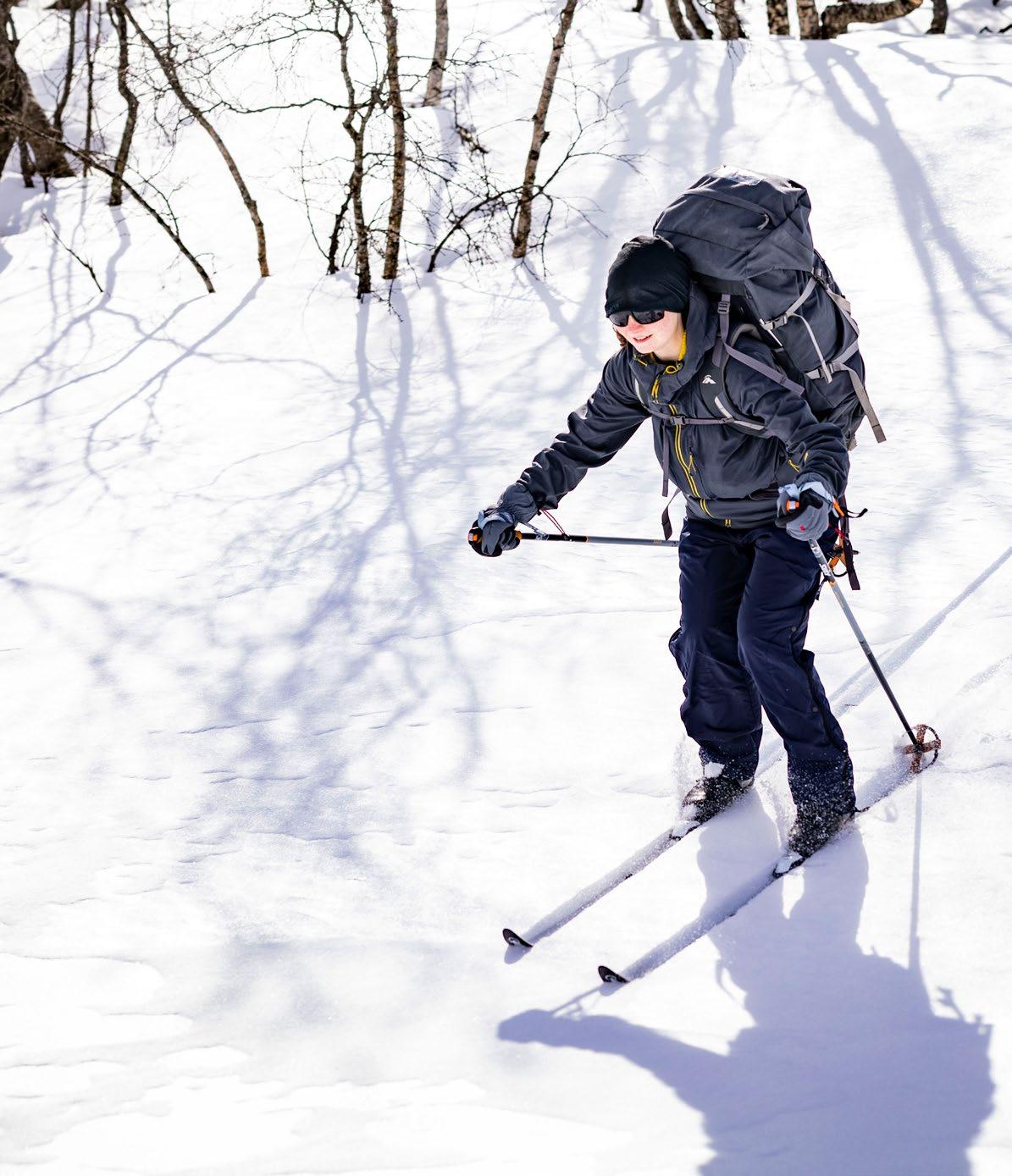
Check out the incredible AT opportunities taking place this year provided by the Cadet Centre for Adventurous Training (CCAT) alongside its commercial partners.
25 May-2 June
Evje, Southern Norway
This remote self-supported four-day wilderness expedition will be completed on foot, by canoe and on mountain bike. The mountains above the Setesdal valley provide a challenging environment for either foot or mountain bike journeys. Participants can also travel by canoe through the interconnecting system of lakes and rivers which run through its base. Each expedition group will consist of eight
cadets and two qualified CFAV leaders. The expedition will conclude with all the participants coming together to complete a white-water rafting journey.
Prerequisites Cadets must be at least 15 years old, hold ACS 3-star, have completed the relevant CCAT foundation course or have certified equivalent experience and have completed the CF Water Safety Test. CFAVs must also hold a current NGB or JSAT leadership/ Instructor award in the appropriate expedition mode of travel.
Personal contribution £600
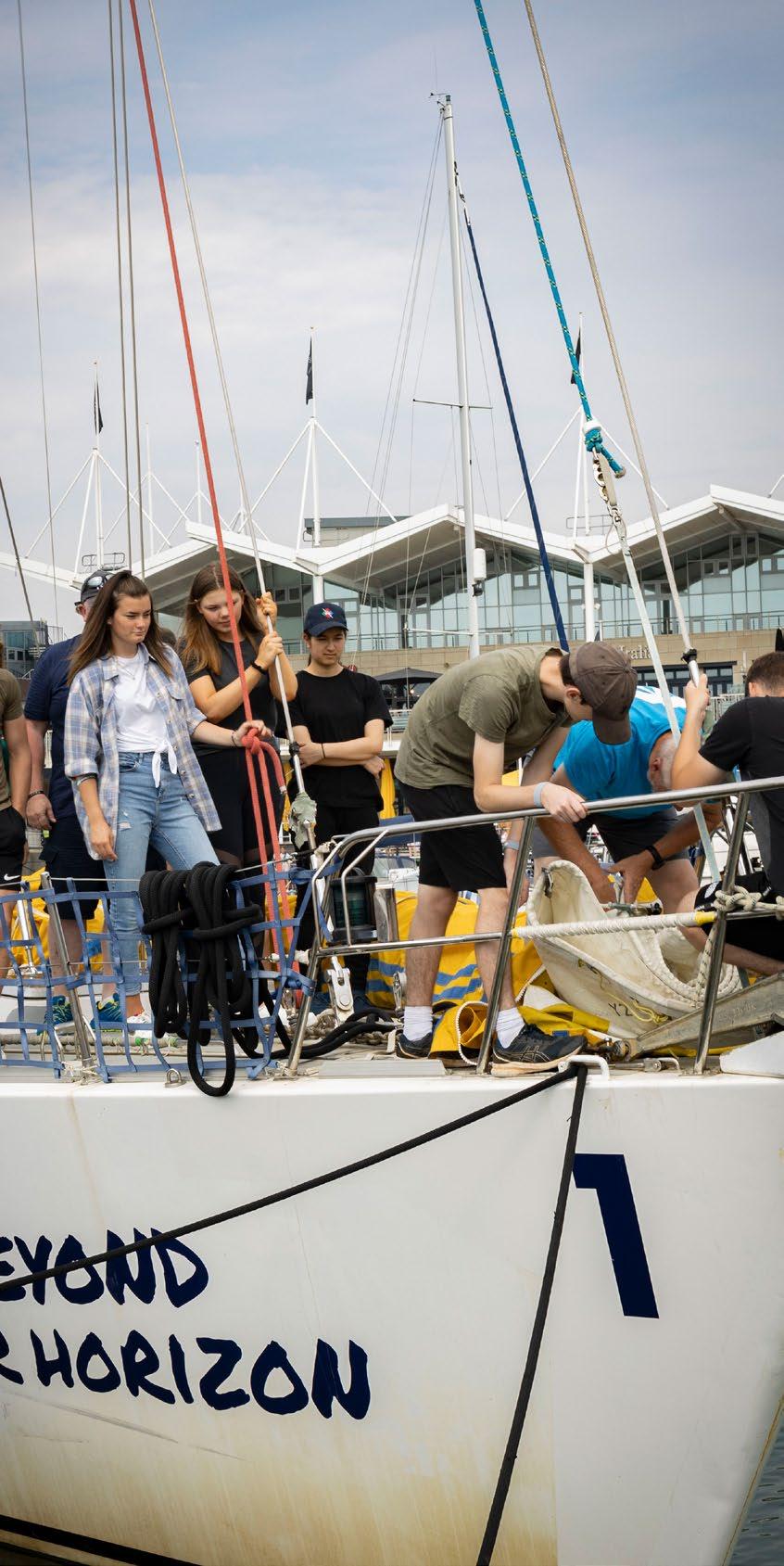
23-29 June
Portsmouth via the Channel Islands
This is an amazing seven-day offshore sailing expedition delivered with the Tall Ships Youth Trust. A Challenger 72 (a former round-the-world racing yacht) will depart from Gunwharf Quay in Portsmouth with a crew of ten cadets and two CFAVs. They will head out into the Solent, across to France and then down to the Channel Islands before returning to Portsmouth.
Participants will crew the yacht, performing all the duties required to ensure the vessel functions safely and efficiently day and night. This will include helming the vessel, setting the sails, navigating, anchor watch and working in the galley preparing meals for the whole crew.
Prerequisites Cadets must be at least 15 years old, hold ACS 3-star, have a genuine interest in sailing and have completed the CF Water Safety Test. CFAVs do not need to be qualified but should have a genuine interest in sailing, have completed the CF Water Safety Test and be prepared to support the cadets and professional crew.
Personal contribution £500
20-27 August
Newcastle to Portsmouth
This exciting eight-day offshore sailing expedition is delivered in conjunction with the Tall Ships Youth Trust. A Challenger 72 (a former round-the-world racing yacht) will depart from Newcastle heading for Portsmouth with a crew of ten cadets and two CFAVs. The vessel will head out into the North Sea making for the Dutch coast, then head south towards Belgium and France before returning to Portsmouth.
Participants will crew the yacht, carrying out all the duties required to ensure the vessel
functions safely and efficiently, day and night. This will include helming the vessel, setting the sails, navigating, anchor watch and working in the galley preparing meals for the whole crew.
Prerequisites This will be an incredibly challenging voyage! Cadets must be at least 15 years old, hold ACS 3-star, have completed a previous voyage or have certified sailing experience and have completed the CF Water Safety Test. CFAVs do not need to be qualified but should have a genuine interest in sailing, have completed the CF Water Safety Test and be prepared to support the cadets and professional crew.
Personal contribution £500

8-16 March 2025
Evje, Southern Norway
This is a challenging nordic ski touring expedition in Evje, Norway. Participants will undertake three days of nordic ski and acclimatisation training before embarking on a challenging remote self-supported three-day ski touring expedition in the mountains above the Setesdal valley.
The expedition is for 24 participants – three groups of eight including cadets, CFAVS and qualified instructors.
Prerequisites This will be a challenging exercise! Applicants do not need any previous nordic ski experience, although general skiing or expedition experience would be beneficial. Cadets must be at least 15 years old, hold ACS 3-star and have completed a CCAT Hill or Mountain Skills course. CFAVs must have some general ski experience and hold a Lowland, Hill or Mountain Leadership award.
Personal contribution £600
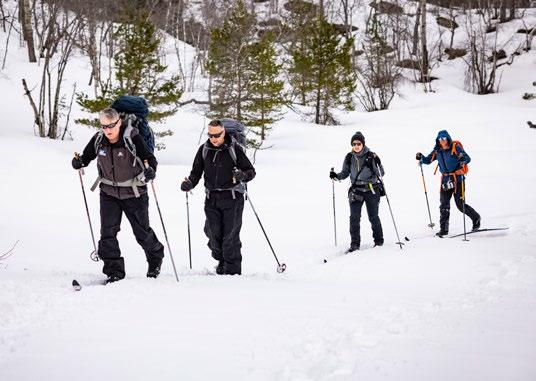

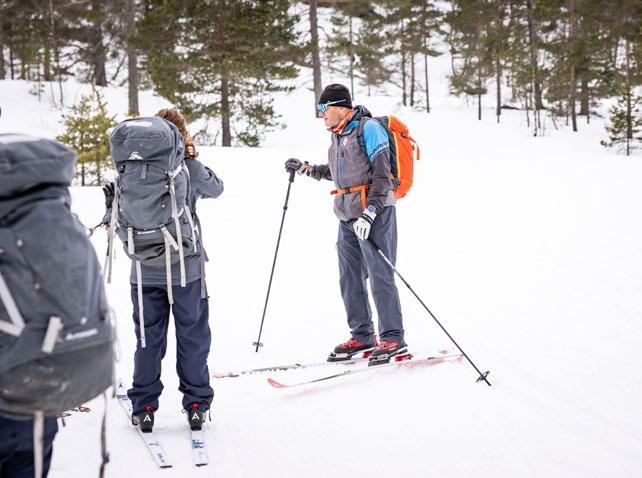

For information and details on applying for events, contact your detachment commander.
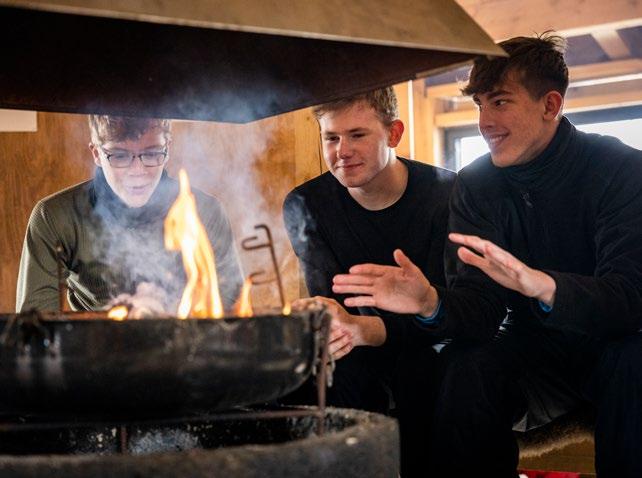
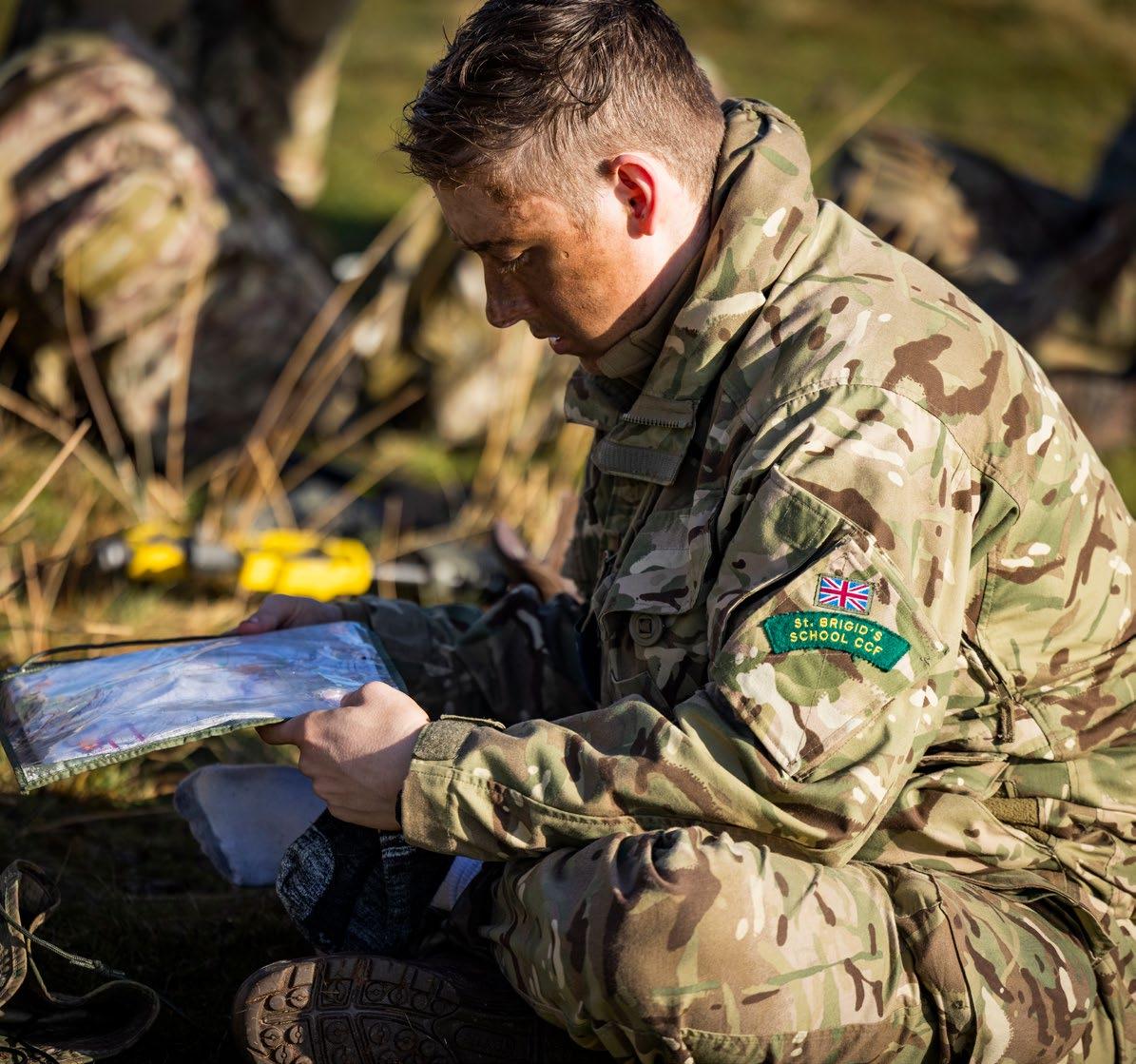
Navigation is a superb skill to master. Not only is it one of our core syllabus subjects, but it also underpins many of the activities we carry out in fieldcraft, expeditions and AT.
The Army Cadet Syllabus for Navigation dovetails with the National Navigation Award Scheme, which allows us to deliver nationally recognised qualifications to enhance our syllabus training for cadets and adult volunteers.
17-19 May
Cwrt-y-Gollen near Brecon, South Wales
This training weekend for adults is a fantastic opportunity to develop your navigation skills whether you are just starting out or are an experienced navigator. You will also gain a nationally recognised vocational qualification from the National Navigation Award Scheme (NNAS) at Bronze, Silver, Gold or Tutor level (dependent upon previous experience and qualifications). The Westminster activity number for bookings is 1009415.
Our navigation team are also available to run regional and local courses for adults. Why not consider running one as part of your adult training weekends? For further details or to discuss booking the team, contact Col Ginge Morris, National Navigation Adviser.
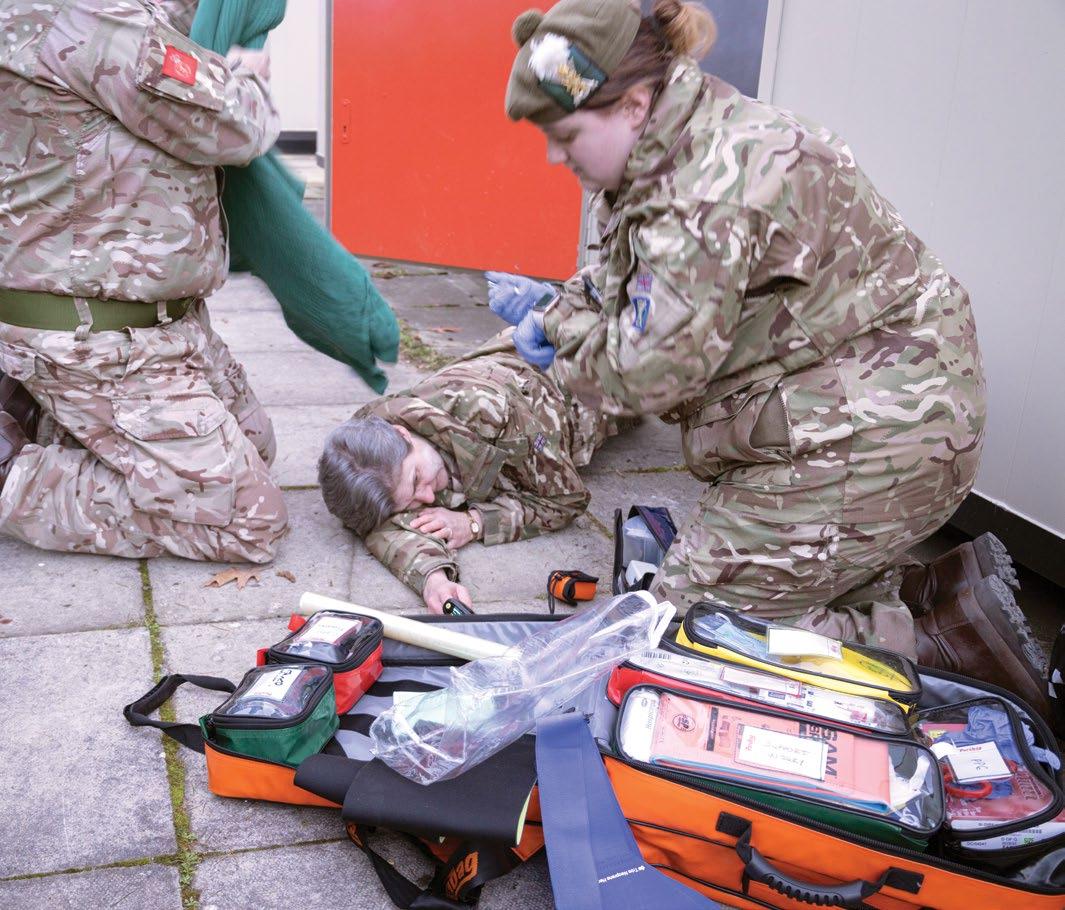
Every year there are a range of courses and conferences to support cadet and volunteer first aid training, culminating in the National First Aid Competition.
The competition gives cadets and CFAVs the opportunity to respond to real-life scenarios – from tent fires and car crashes to diabetic emergencies and choking casualties.
19-24 May
CTC Frimley Park – adults
Healthy Minds Facilitators Course
Teachers Course
First Aid Development (MSO) Course
13-18 October
CTC Frimley Park – adults
Healthy Minds Facilitators Course
Teachers Course
First Aid Development (MSO) Course
15–17 November
Holcombe Moor, Greater Manchester – cadets
National First Aid Competition for cadets across the UK
For information and details on applying for events, contact your detachment commander.
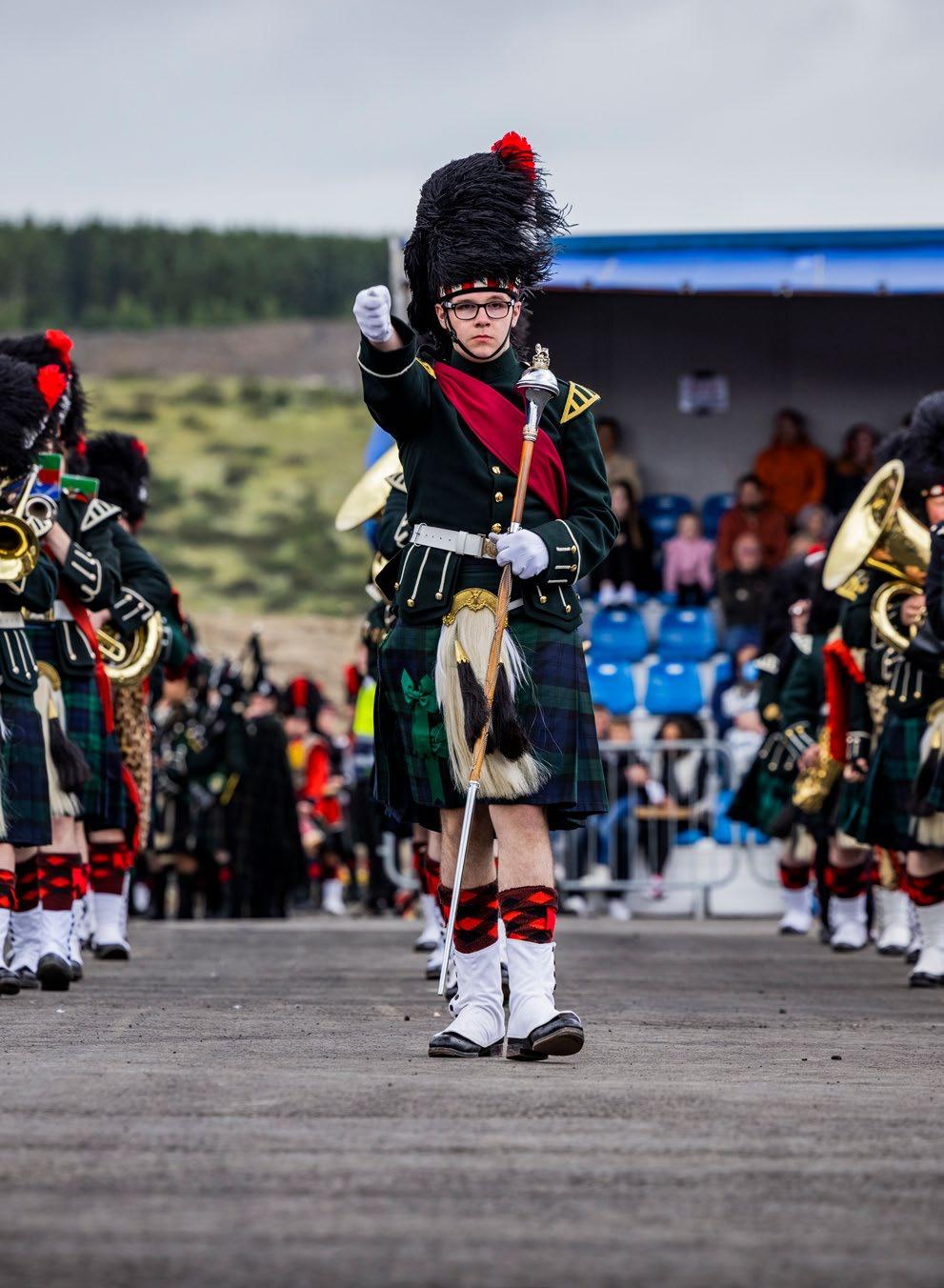
Pipes and Drums and Bands and Corps of Drums Camp
30 March -6 April
Pipes and Drums Cadet Training
24-26 May
2-4 August
TBC 27-29 September
TBC 29 November - 1 December
17-19 January 2025
21-23 March 2025
Adult Pipes and Drums and Bands and Corps of Drums
TBC 7-9 June
TBC 28-30 June
15-17 November
Pipes and Drums Camp
13-20 October
Bands and Corps of Drums Camp
26-2 November
For information and details on applying for events, contact your detachment commander.
Cadets who play for their county bands not only have the chance to gain internationally recognised qualifications in musicianship, but they also get to play at events such as military tattoos and remembrance parades. Image: Kate KnightArmy Cadets Diversity and Inclusion aims to improve the culture throughout the organisation.
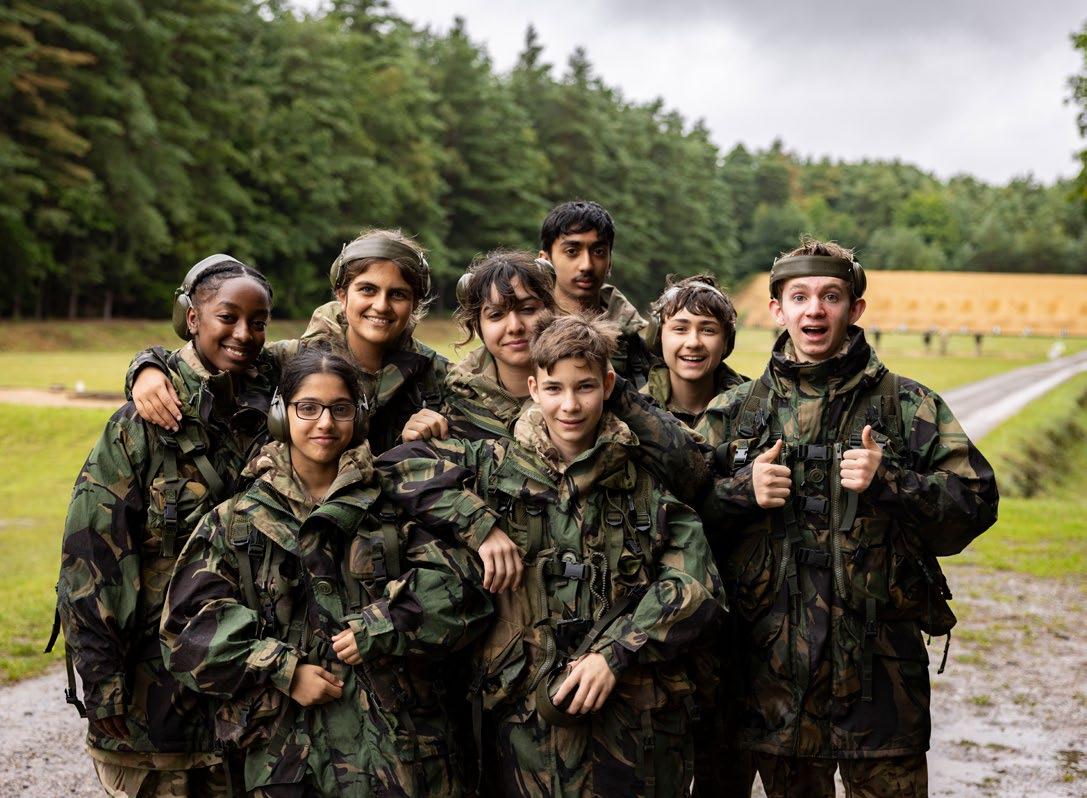
D&I Awareness Course
21 September
2 November
This course opens up thinking about current beliefs and attitudes around diversity and how they can be consciously reviewed to support an inclusive approach for both cadets and adults.
Webinar information is available to access advice and strategies to support inclusion for a variety of needs at detachments and residential camps. These are on ACRC, Tab 2, Inspire 4.2.
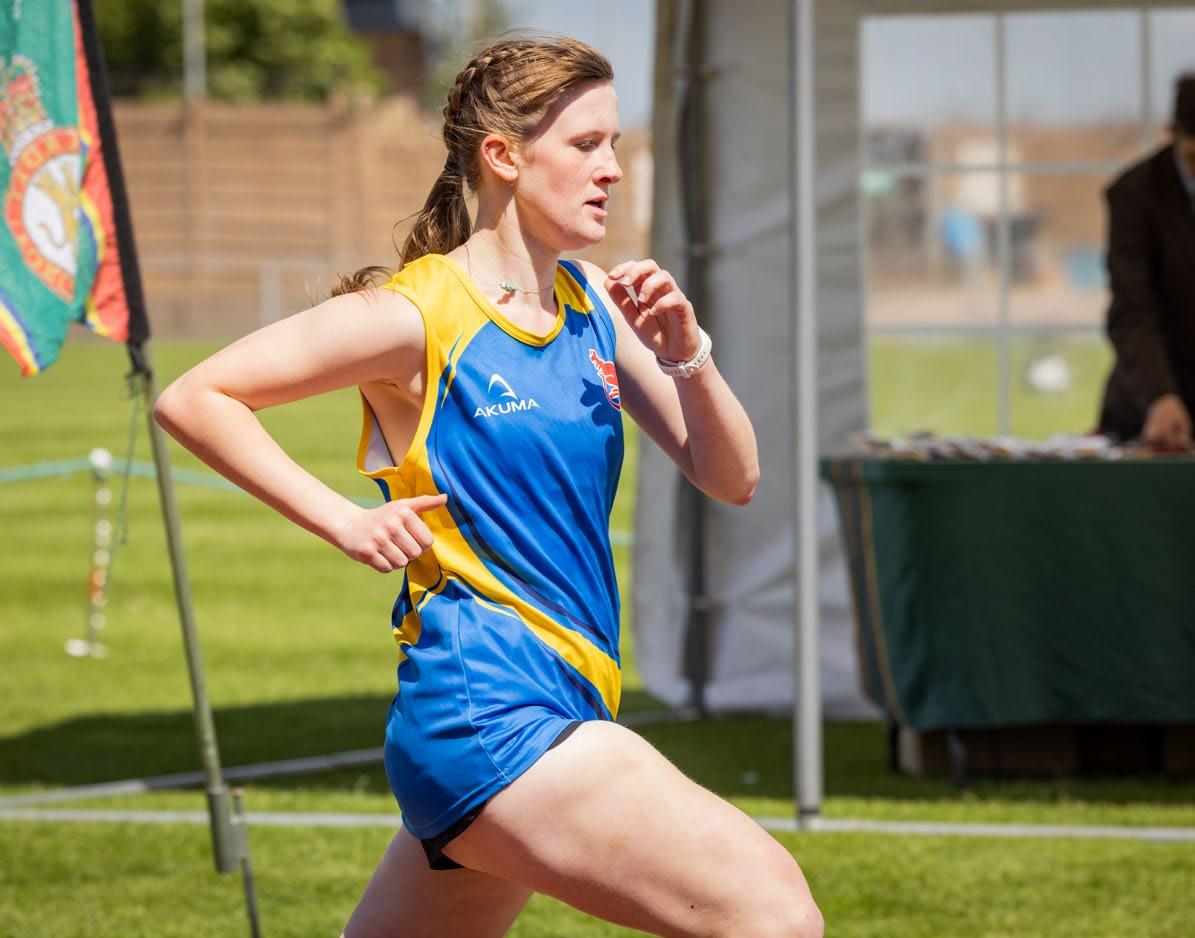
Cadets can compete at local and regional levels and progress to national championships to represent their region.
14-16 June National Athletics
18-20 October National Archery
18-20 October National X Rugby Sevens and Rugby
Referee Course
26-31 October Madrid Football Tour
21-23 March 2025 National Football
21-23 March 2025 National Orienteering
21-23 March 2025 National X Country
All cadet events are held at Altcar near Crosby, Liverpool.
For information and details on applying for events, contact your detachment commander.
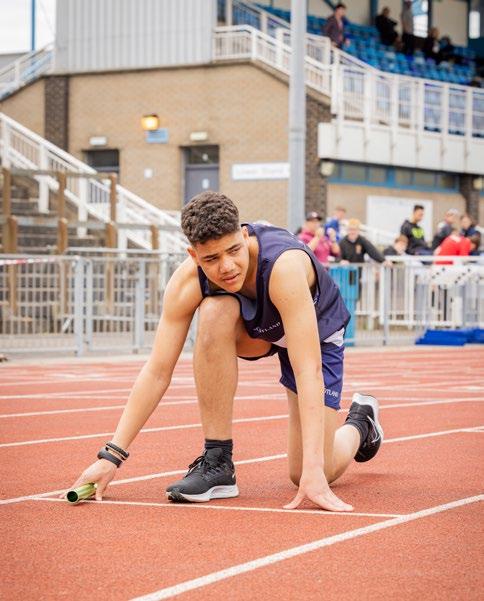
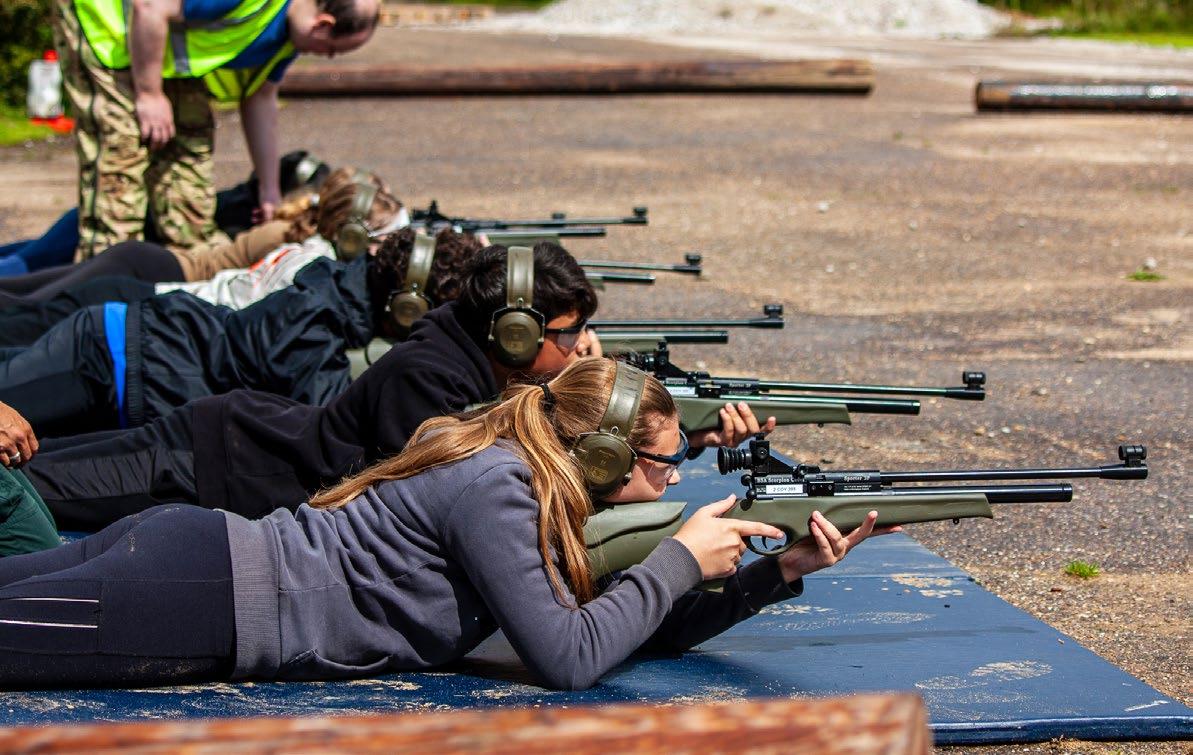
Competitive shooting and marksmanship for the Army Cadets is organised by the Council for Cadet Rifle Shooting (CCRS) on behalf of the Ministry of Defence.
On completion of competitions at local level, some cadets are selected for annual national finals in the disciplines of clay, air rifle, 5.56mm and 7.62mm.
26-28 April CFAV Clay (Cambridge Gun Club)
18-19 May National Target Sprint (AR) Competition
7-9 June National Cadet Clay Championships
11-14 July Inter Services Cadet Rifle Meeting (ISCRM)
15-18 July CCF Schools Meeting
19-27 July NRA Imperial Meeting (7.62mm)
31 August-1 September Ex BISLEY BULLET
24-27 October Cadet Skill at Arms Meeting (CCF SAM)

This year there will be five Gold DofE expeditions. ACF and CCF cadets and CFAVs who are registered for Gold DofE can bid for a place to undertake a practise or assessed expedition, or both. All events will be on Westminster.
3-7 April Warcop, England – practise expedition and selection for Bavaria
25-31 May Bethesda, Wales – practise or assessed expedition
10-17 August Bavaria, Germany –assessed expedition only
17-23 August Dartmoor, England – practise or assessed expedition
26 October-1 November Peak District, England – assessed expedition only
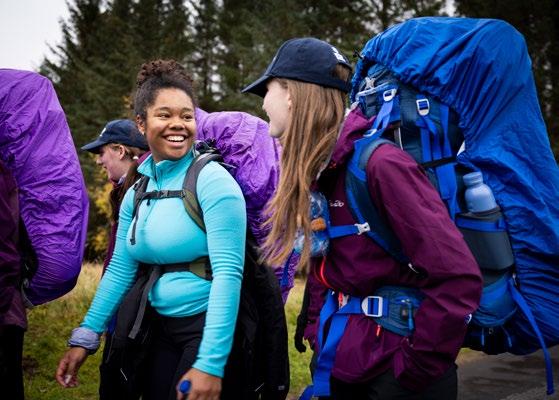

6-12 April
Advances in digital technology have opened up a number of opportunities in signals and cyber defence training, giving cadets the chance to hone their communications skills. This is often a great introduction to potential careers in science, technology, engineering and maths (STEM).
CyberFirst Advanced and Advanced Radio User Blandford Forum (cadet)
21 April National HF Radio Competition
22-28 June System Manager Course
29-30 June Ex SUMMER WHINE
National Radio Net (NRN) summer competition
3-9 August
Advanced CIS Instructor (adult)
26-31 October
CyberFirst Defender and Cadet Signaller Courses
Blandford Forum
26-31 October National STEM Camp
1 December Ex CHRISTMAS CRACKER
National Radio Net (NRN) winter competition
15-21 February 2025
CyberFirst Defender and Cadet Signaller Courses Blandford Forum (cadet)
7-9 March 2025 Ex ROLLING THUNDER
For information and details on applying for events, contact your detachment commander.
For cadets
1-19 July
Incoming Overseas Exchanges
The opportunity to host cadets from around the world including Canada, India, Poland, Latvia, Lithuania and Estonia.
13-26 January 2025
India Cadet Exchange
For CFAVs
19-21 April
Media & Comms Training Weekend
10-12 May
Wellbeing Conference
13-15 September
Training Conference

The Cadet Training Centre delivers the cadet experience by training motivated CFAVs and senior cadets from across the UK. It is the training Centre of Excellence for the Army’s cadet forces. All courses are designed and delivered to be fun and challenging.
18-23 August
22-27 September
10-15 November
24-29 November
8-13 December
9-14 February 2025 (RM/SCC but possibly ACF/CCF numbers dependent)
Prerequisites In-date rifle Weapon Handling Test (WHT), received training on rifle lessons 1-9 and basic general knowledge of rifle and associated parts for entry assessment.
CCF Basic
21-26 April
2-7 June
14-19 July
16-21 February 2025
Gives CFAV instructors the knowledge and experience to instruct cadets in Fieldcraft and Tactics at basic level.
Prerequisite In-date WHT for the rifle. Cadet Training Teams (CTT) to book students on course.


12-17 May
23-28 June
7-12 July
6-11 October
15-21 March 2025
(RM/SCC but possibly ACF/CCF numbers dependent)
22-28 March 2025
(RAFAC but possibly ACF/CCF numbers dependent)
Enables CFAV instructors to plan, conduct and supervise blank-firing activities.
Prerequisites In-date rifle, smoke grenade, Simulator Battle Sound (SBS) and trip flare WHT. Must have current Risk Assessment Practitioner Course on Westminster.

9-14 June
15-20 September
17-22 November
1-6 December
19-24 January 2025
Prepares CFAV for the role of detachment commander. Prerequisites Risk Assessment Practitioner on Westminster and having conducted all pre-learning on DLE.
30 March-5 April
6-12 April
3-9 August
19-25 October
26 October-1 November
CCF and ACF senior cadets aged 16-18 years old are assessed and recommended to county commandants to award Master Cadet. Prerequisites In-date rifle WHT and having conducted all 3-star syllabus for ACF, or CCF Advanced (Special to Arms Infantry) for CCF.
22-26 July
CCF and ACF Master Cadets aged 16-18 are assessed against the ACS syllabus for the award of top ACF and CCF Champion Cadet. Prerequisites Attended and passed the Master Cadet course, hold in-date rifle WHT and be recommended by their county commandant or contingent commander.
Essential info for cadets and CFAVs attending courses at CTC Frimley Park this year from Chief Instructor Maj Stephen Dickson RIFLES.

• Good level of physical endurance as the course is demanding. You will take part in six or seven section attacks on some days.
• Revise basic fieldcraft. You will be expected to be confident in your personal skills and drills.
• Practise orders and model building. Get experience receiving orders, be familiar with the orders process and, if you can, have a go at delivering some.
• Revise the roles and responsibilities of a section commander and 2IC in the field.
• Revise your skill at arms drills lessons 1-9. Make sure your weapon handling skills are as per the rifle manual.
• Develop and deliver revision sessions for cadets or CFAVs alongside a current SAAI.
• Practise the teaching formula of Explain, Demonstrate, Imitate, Practice (EDIP). Use it to teach yourself to tie your shoelaces.
• Take part in blank-firing exercises in a support role to become familiar with the process.
• Revise basic fieldcraft and skill at arms. You will be expected to be confident in your personal skills and drills.
• Be prepared for long, demanding days. On the Wednesday and Thursday you will take part in eight to ten battle exercises daily.
• Have a look at the Exercise Action Safety Plan (EASP) template and be familiar with editing it in MS Word.
• Get involved in planning a training programme and events in your detachment.
• Pay attention to the pre-learning on ACSMS and the CASP.
• Know how to edit a document in MS Word.
• Revise the CFAV qualifications listed in AC 71101 and AC 71855-C.
• Make sure you have been taught rifle lessons 1-9, in full, by a qualified Skill at Arms Instructor.
• Be ready to learn. The week should be fun and is designed to equip you to deliver the cadet experience.
• Practise your personal weapon drills. Make sure your own weapon handling is exactly as per the manual.
• Revise every rifle lesson (rifle lessons 1-9) taught in full by a current SAAI.
• Develop and deliver revision sessions for cadets or CFAVs alongside a current SAAI.
• Practise the teaching formula of Explain, Demonstrate, Imitate, Practice (EDIP). Use it to teach yourself to tie your shoelaces.




